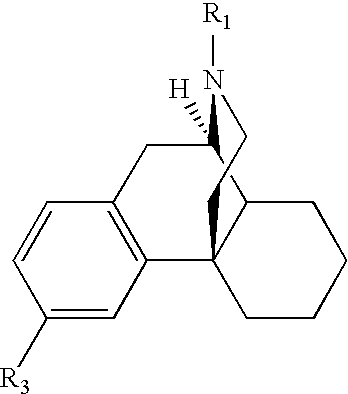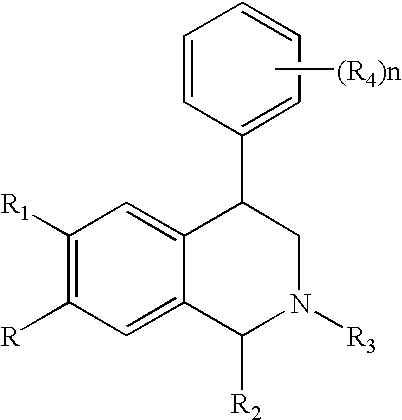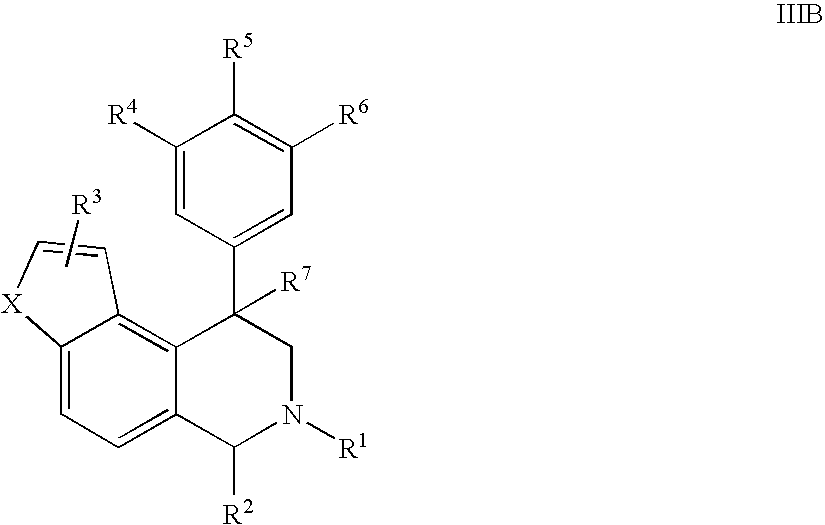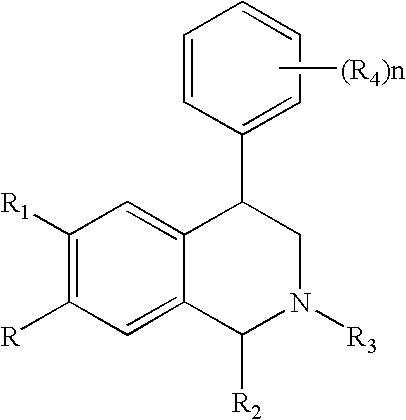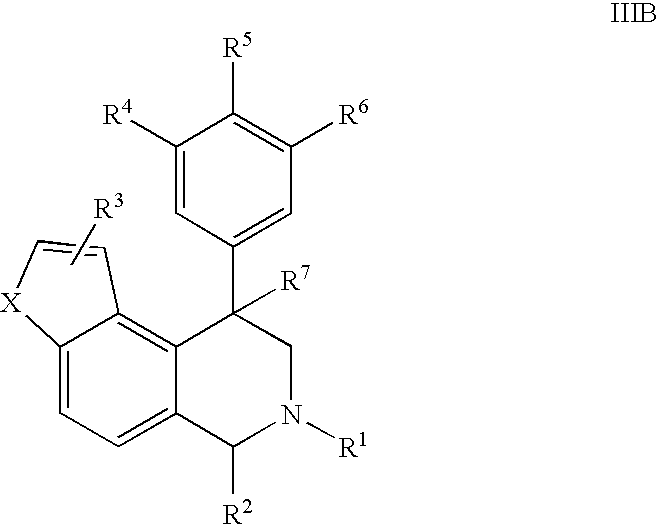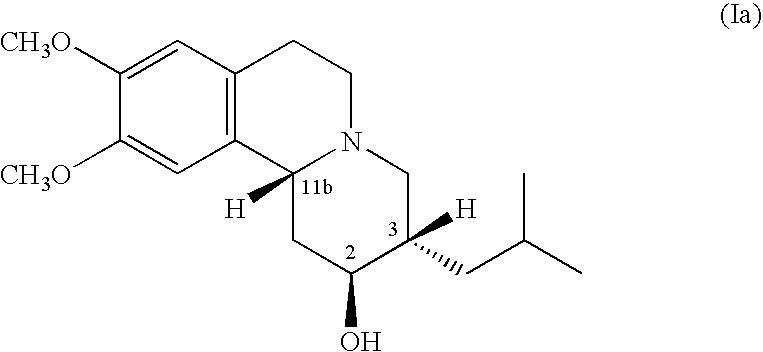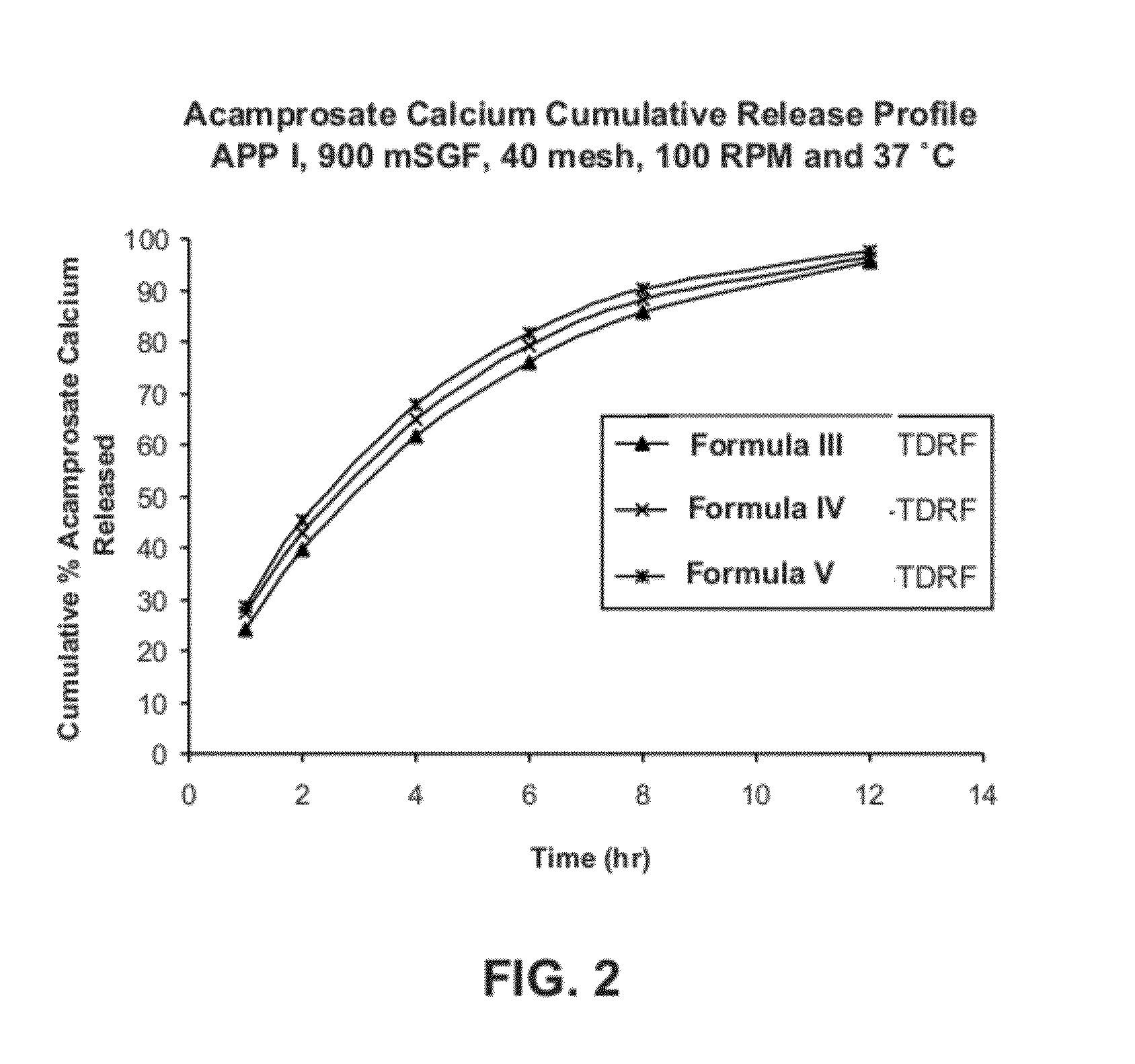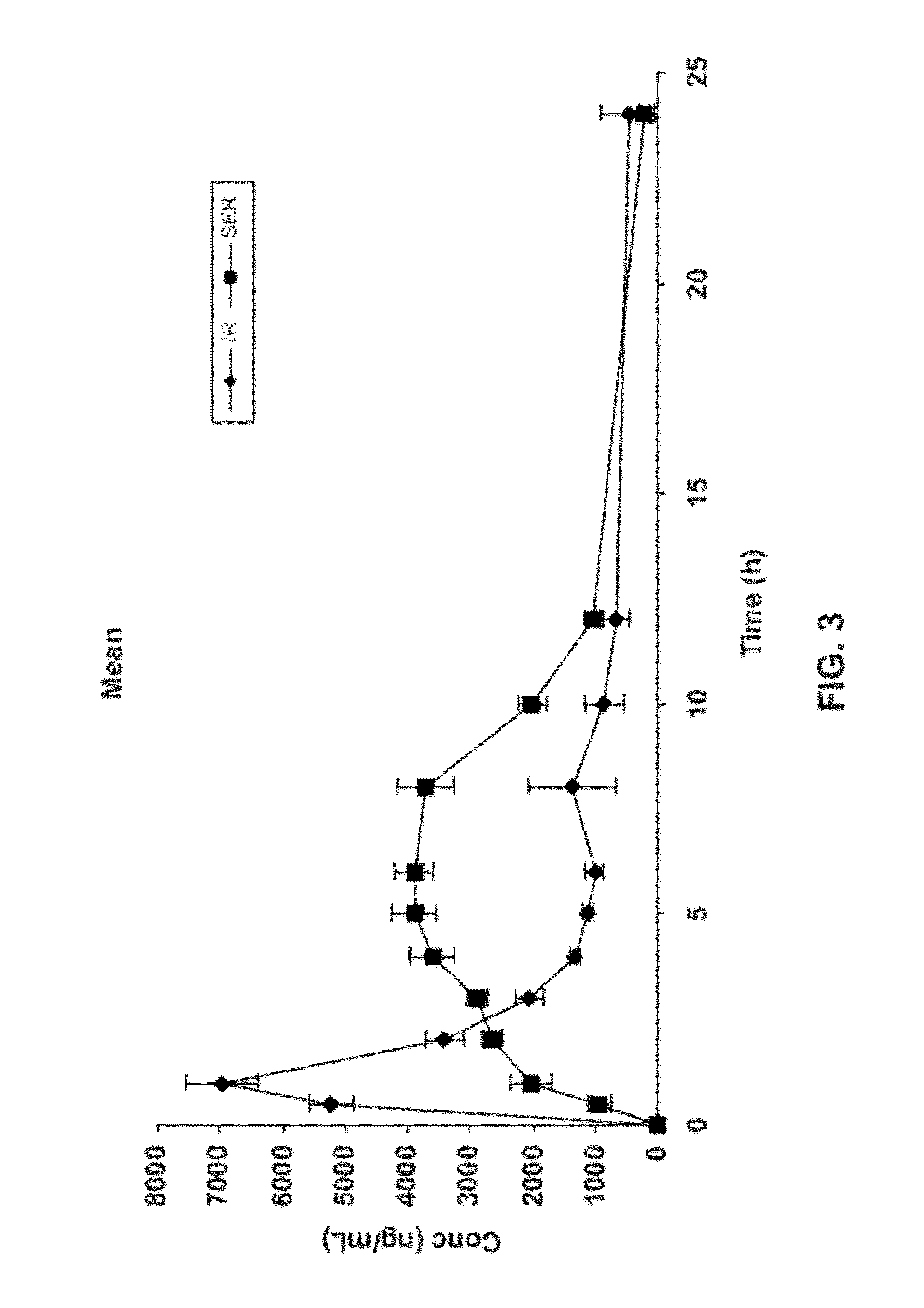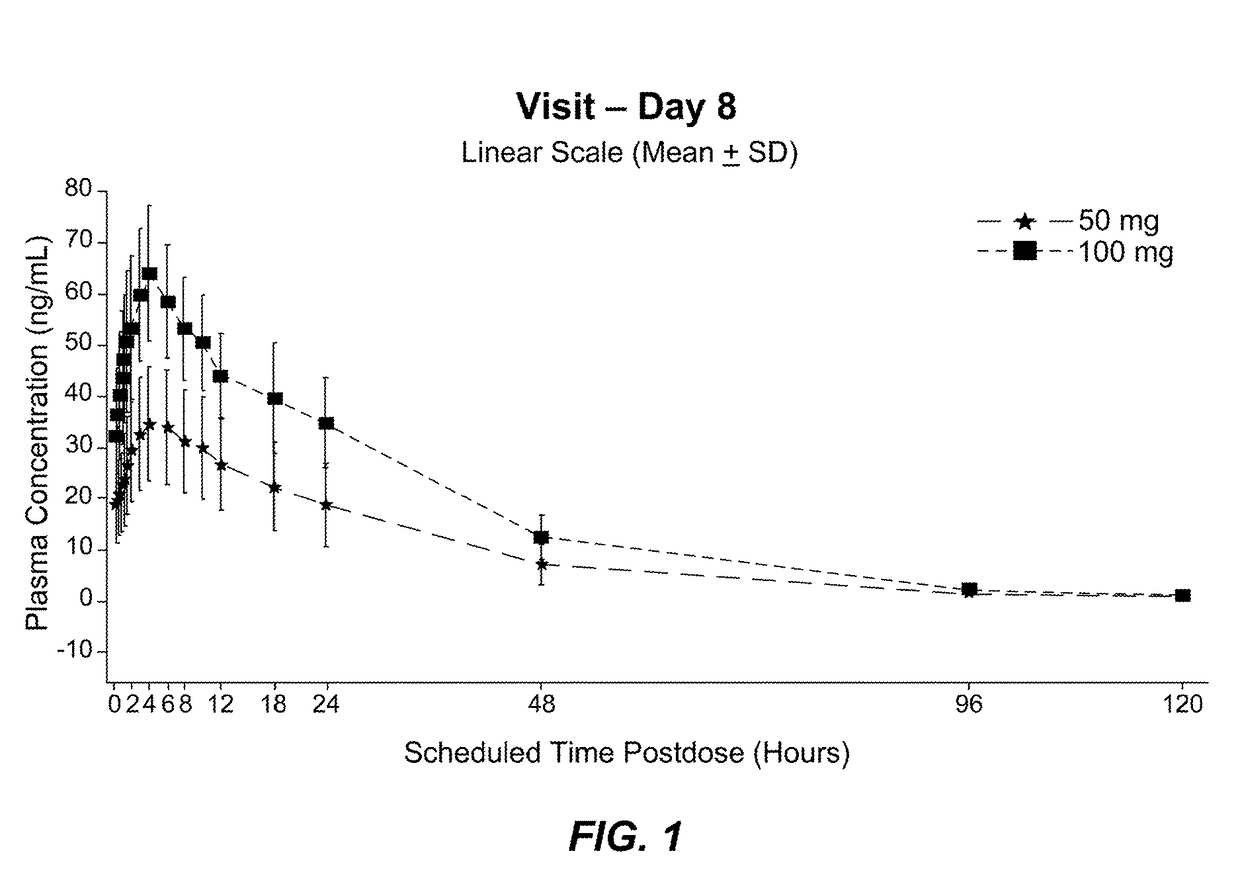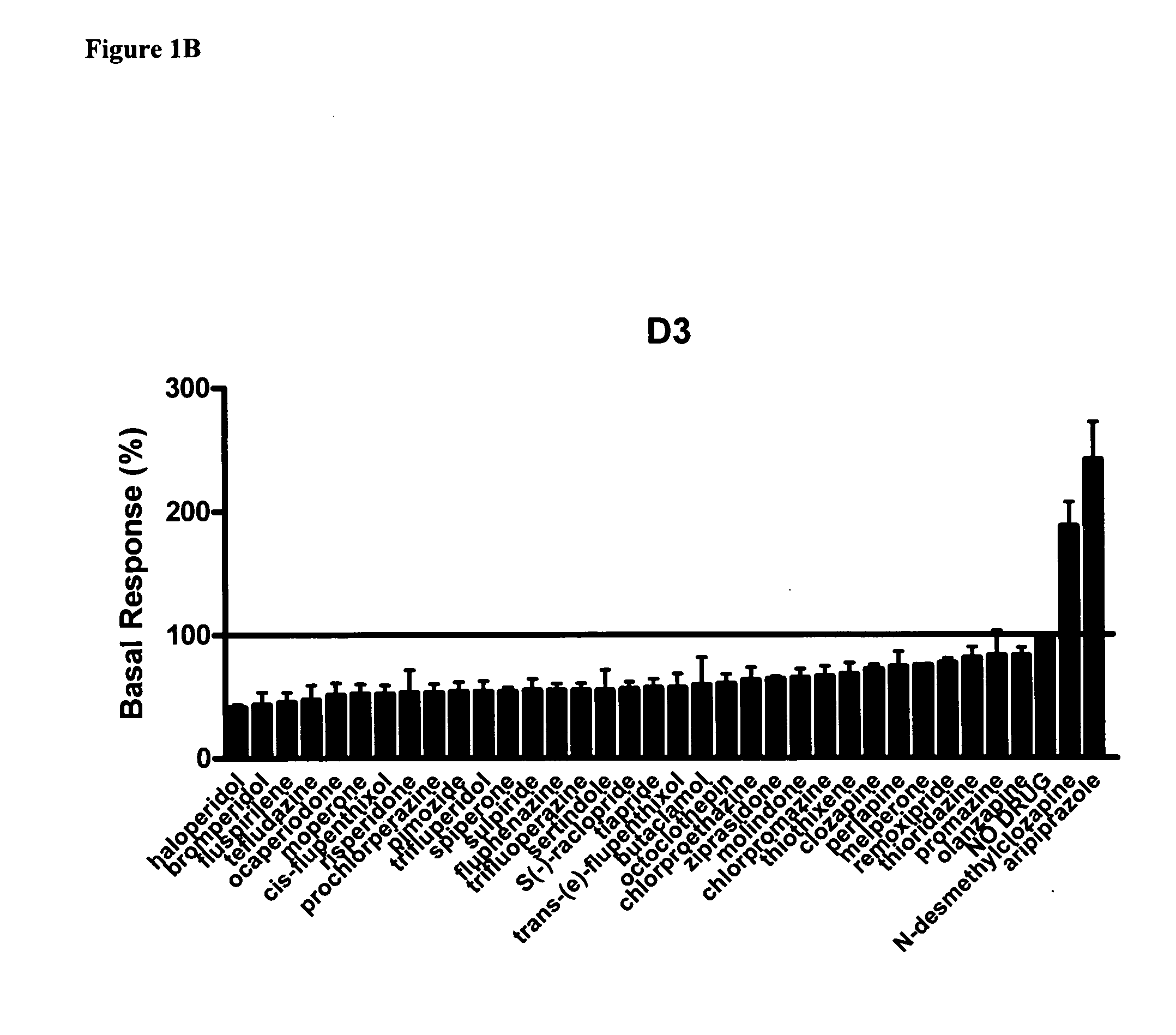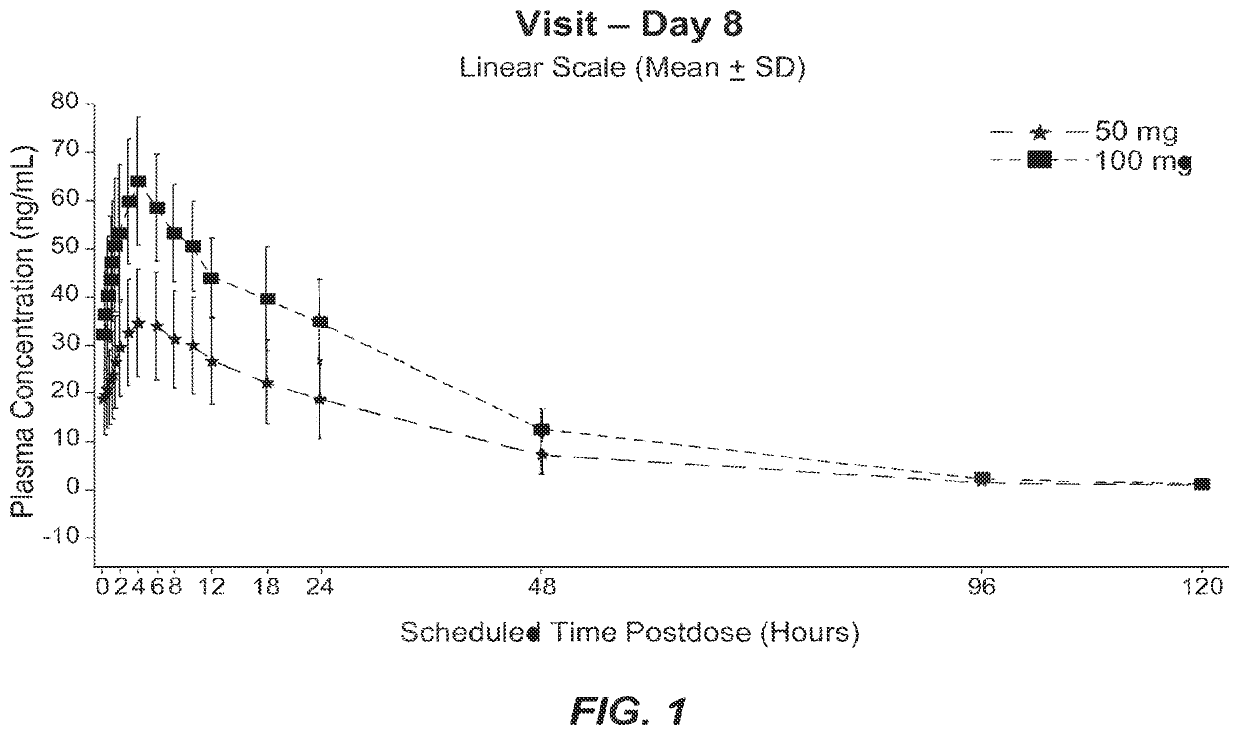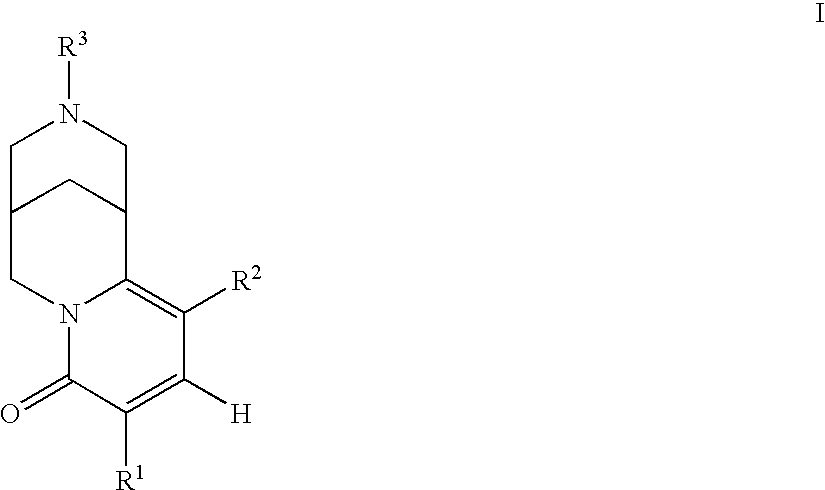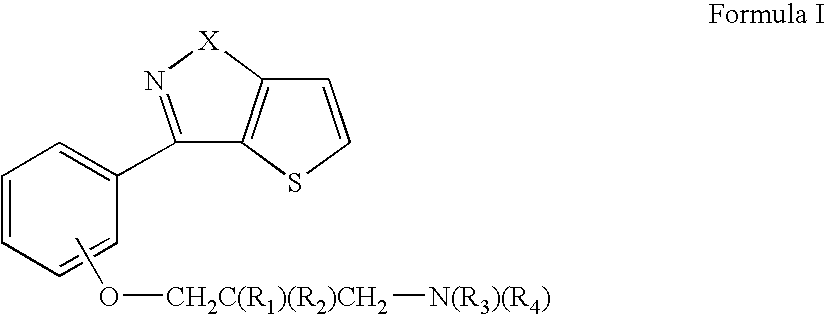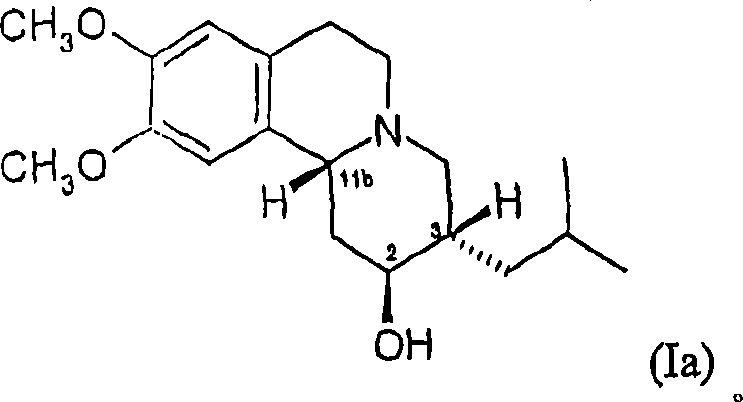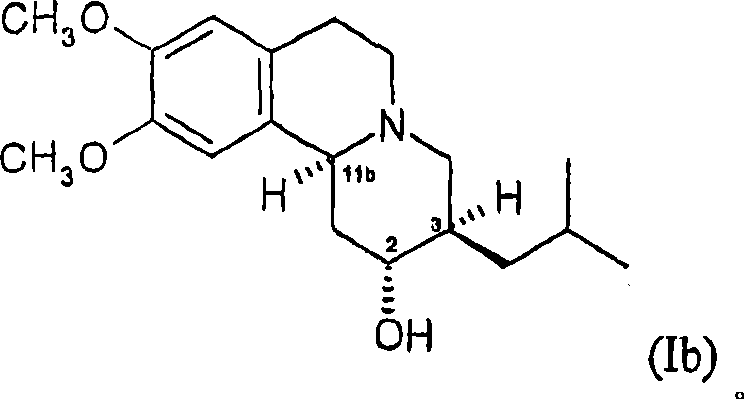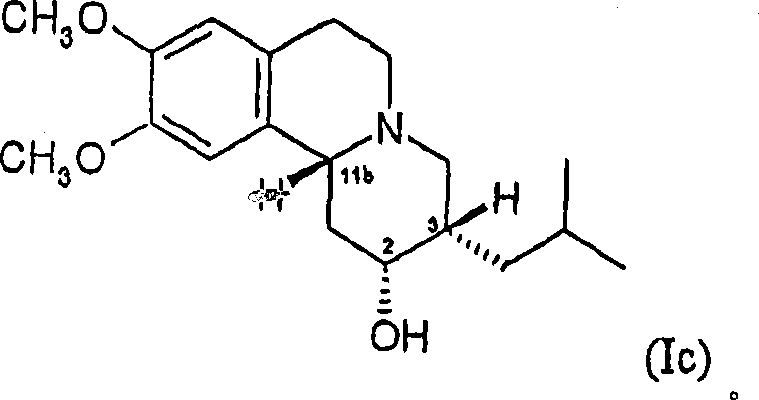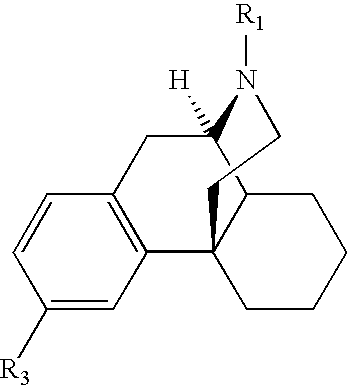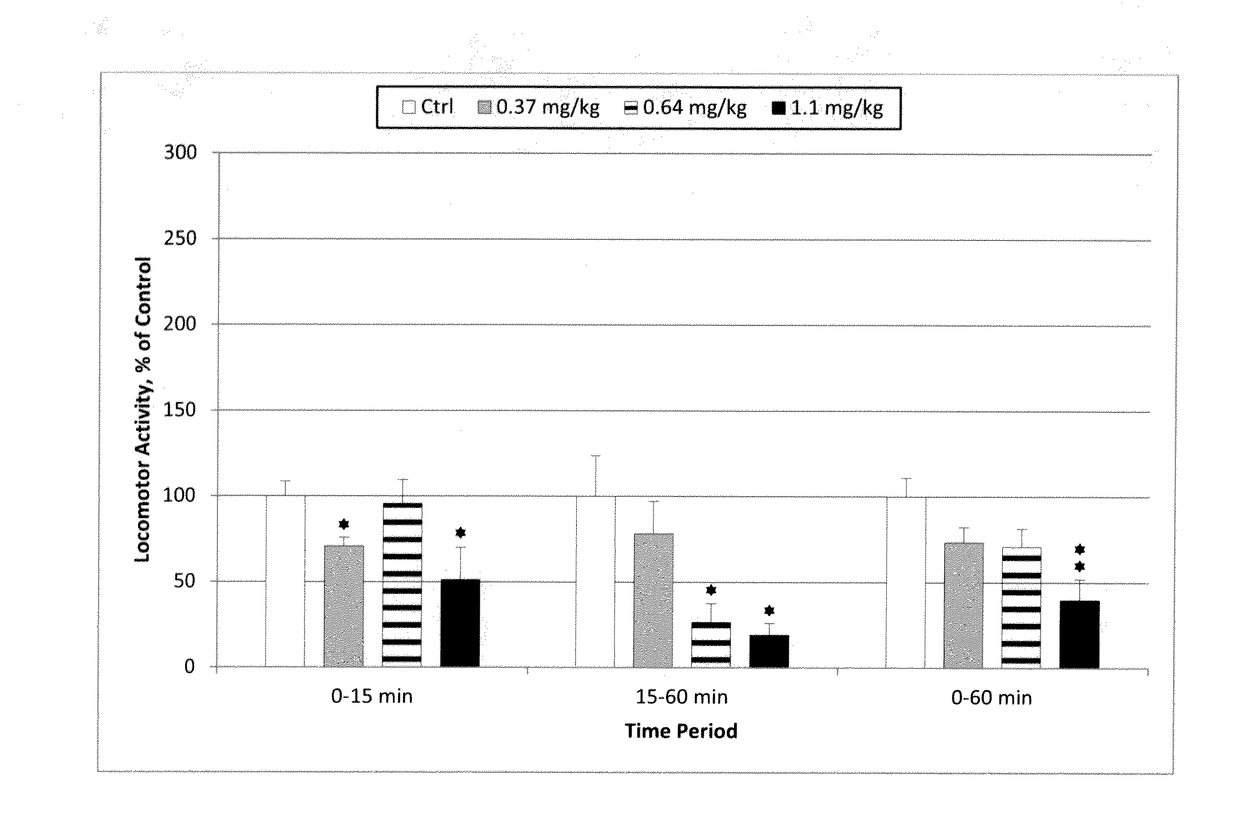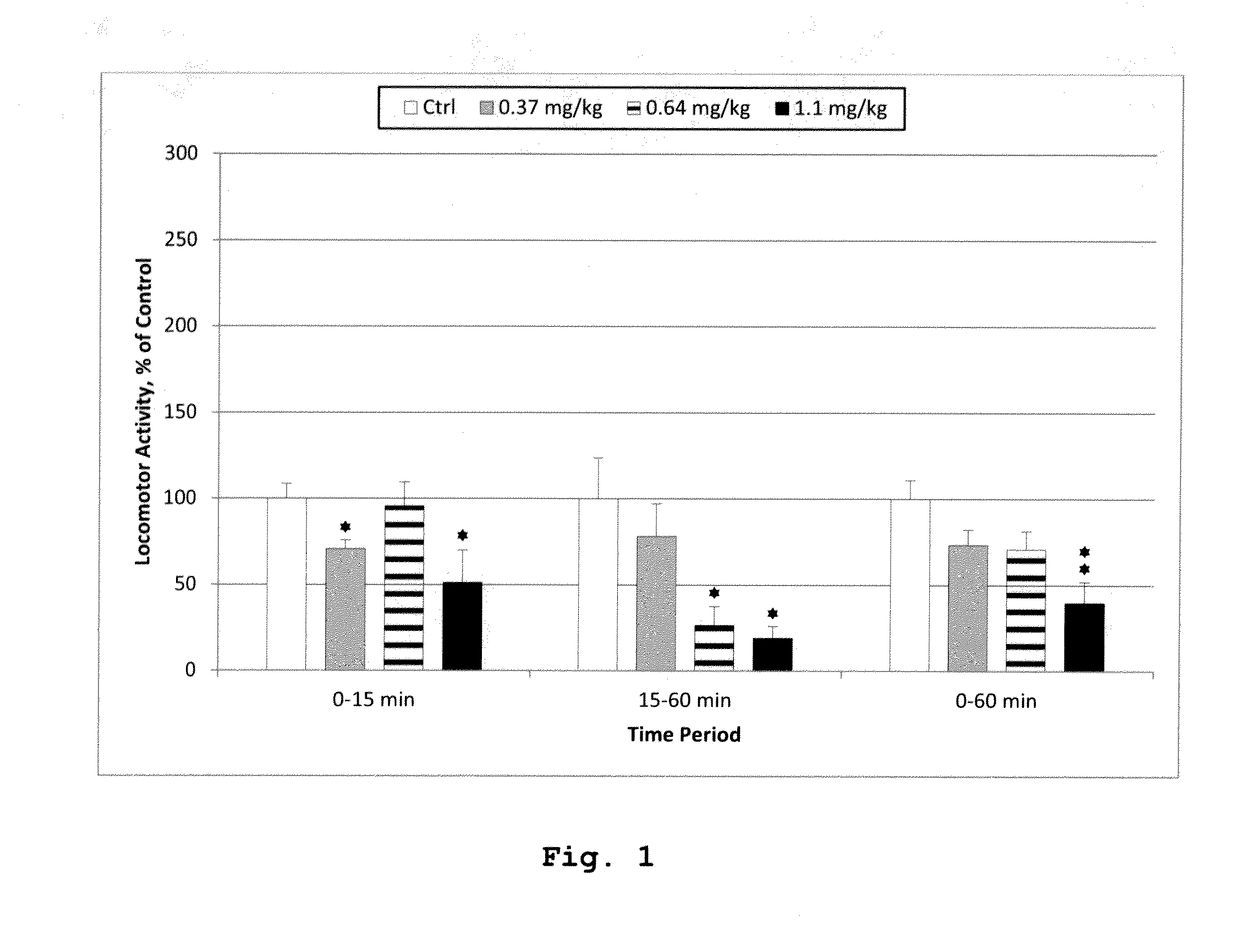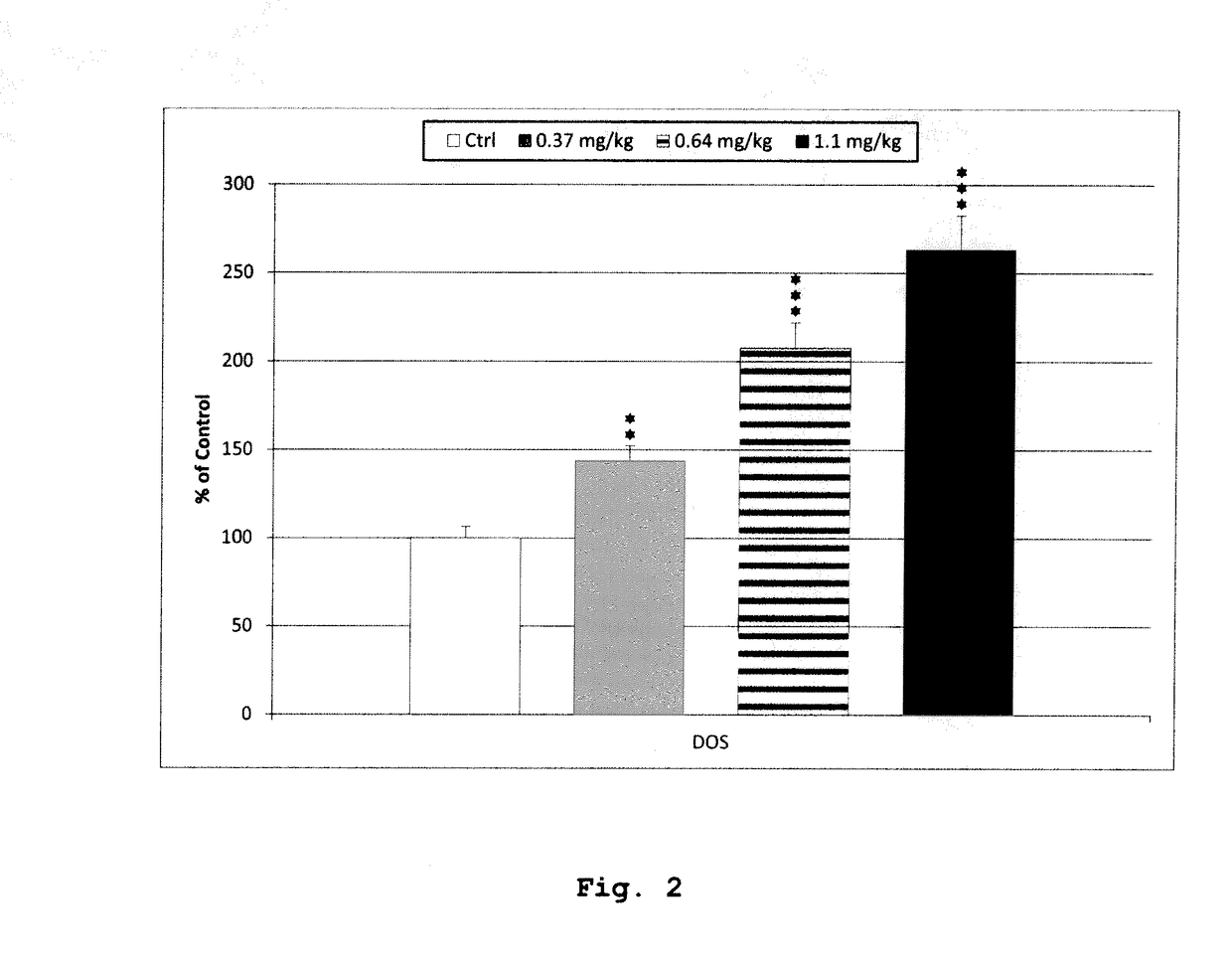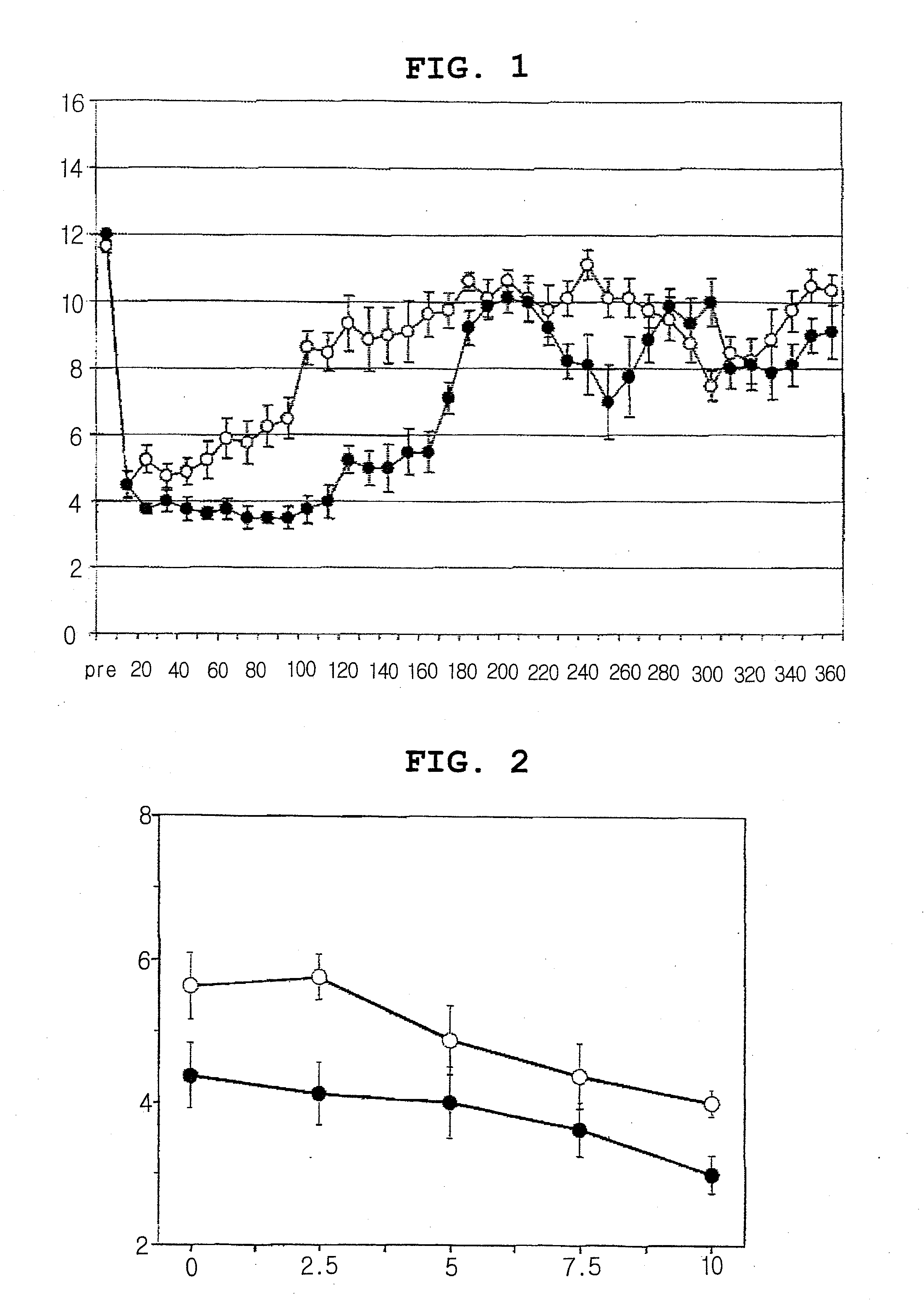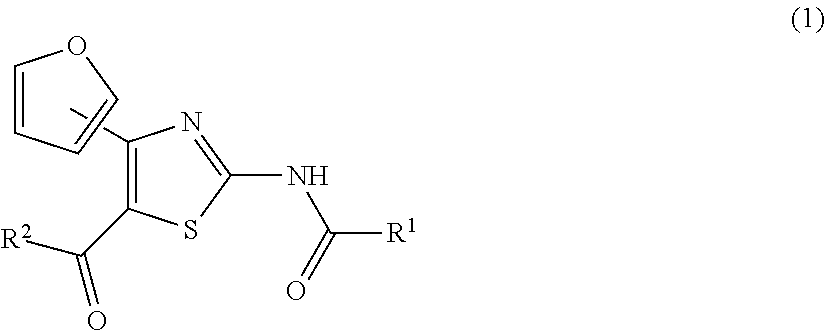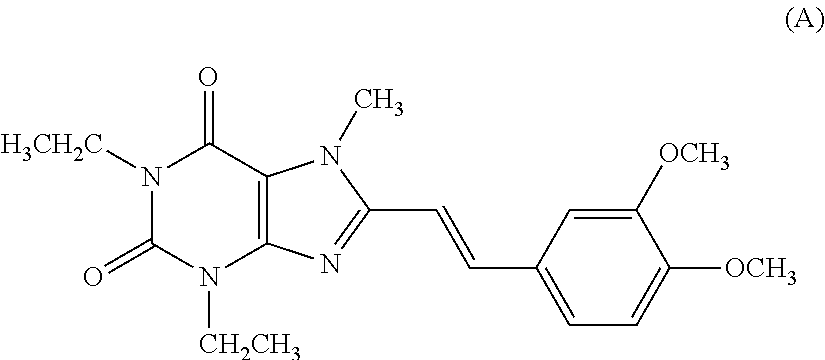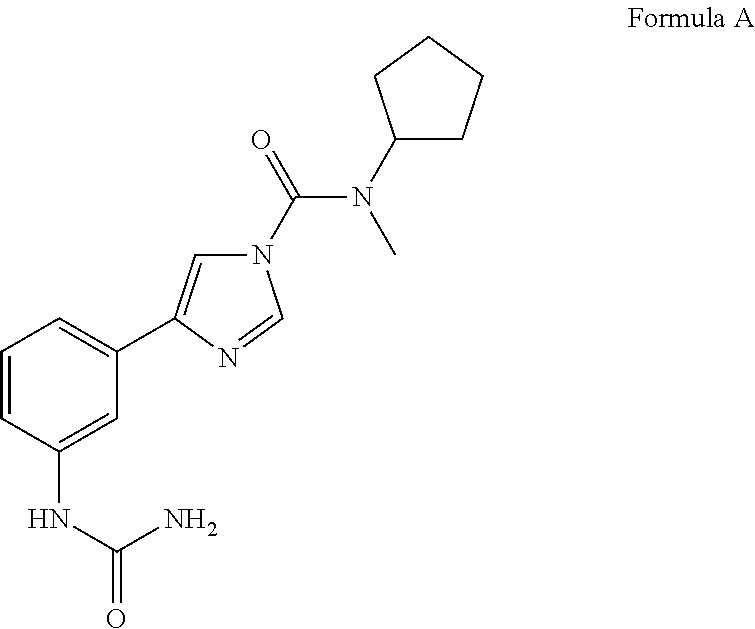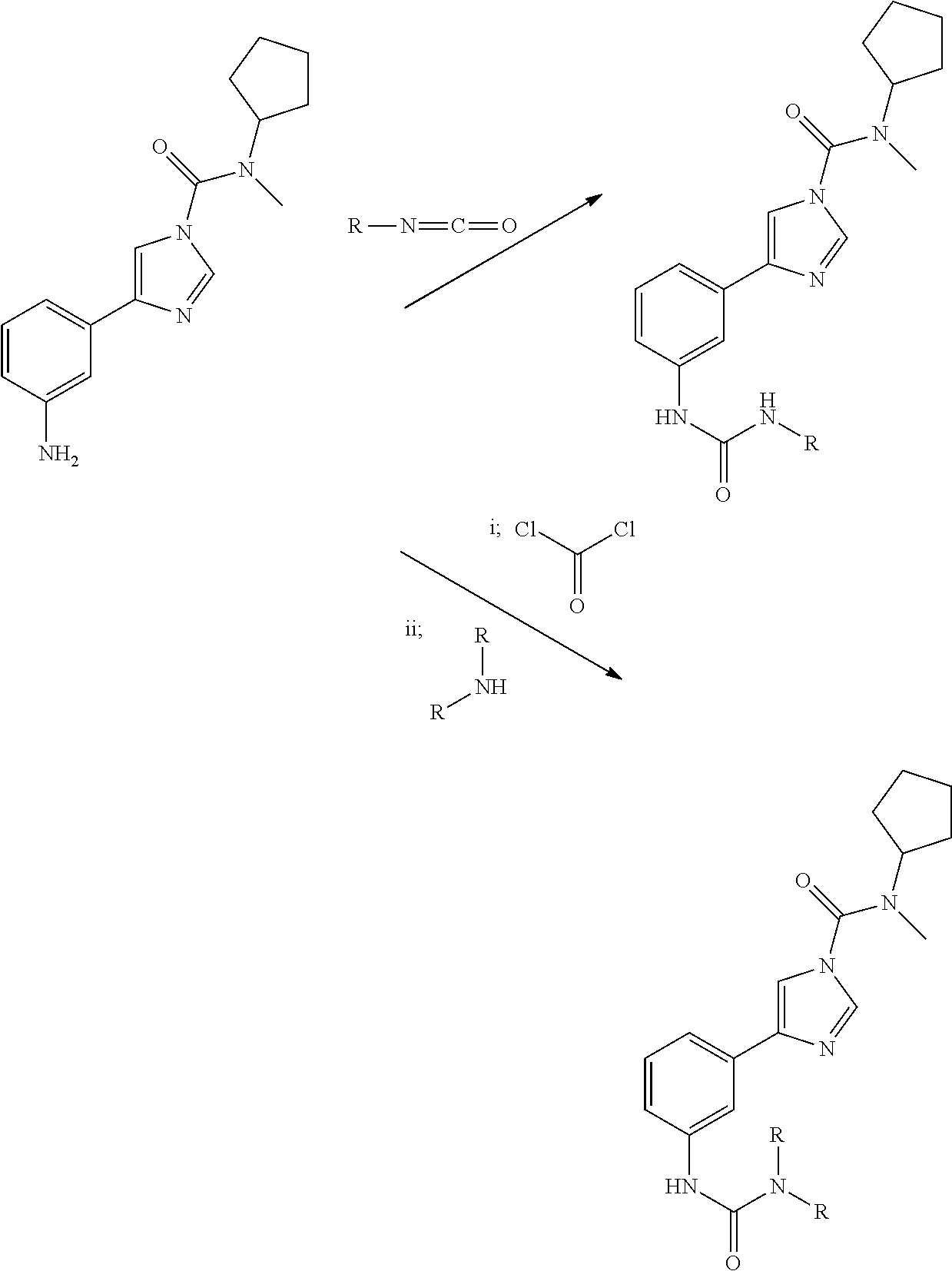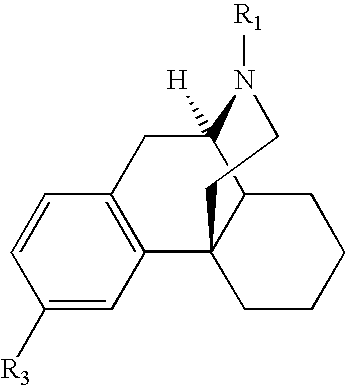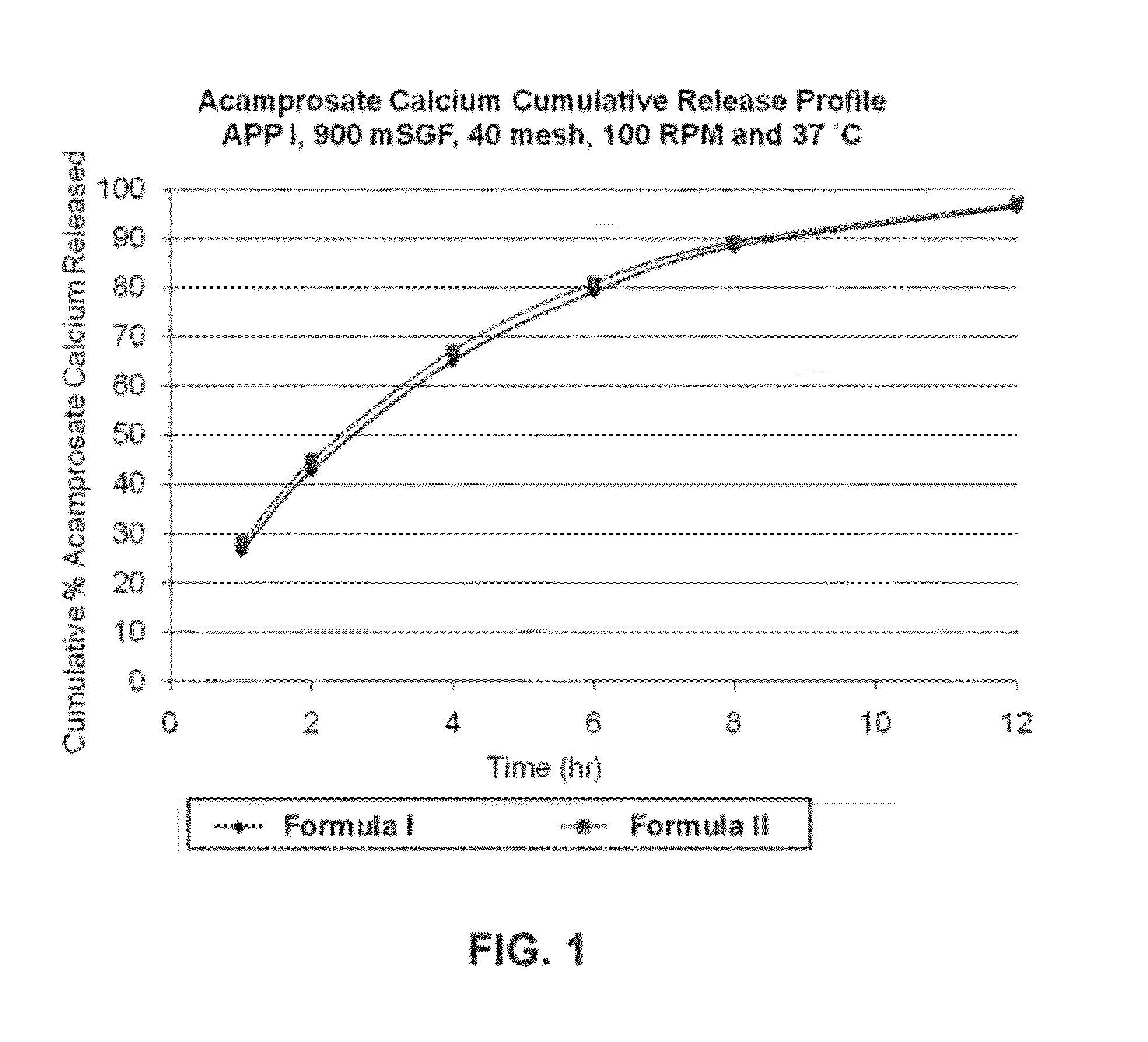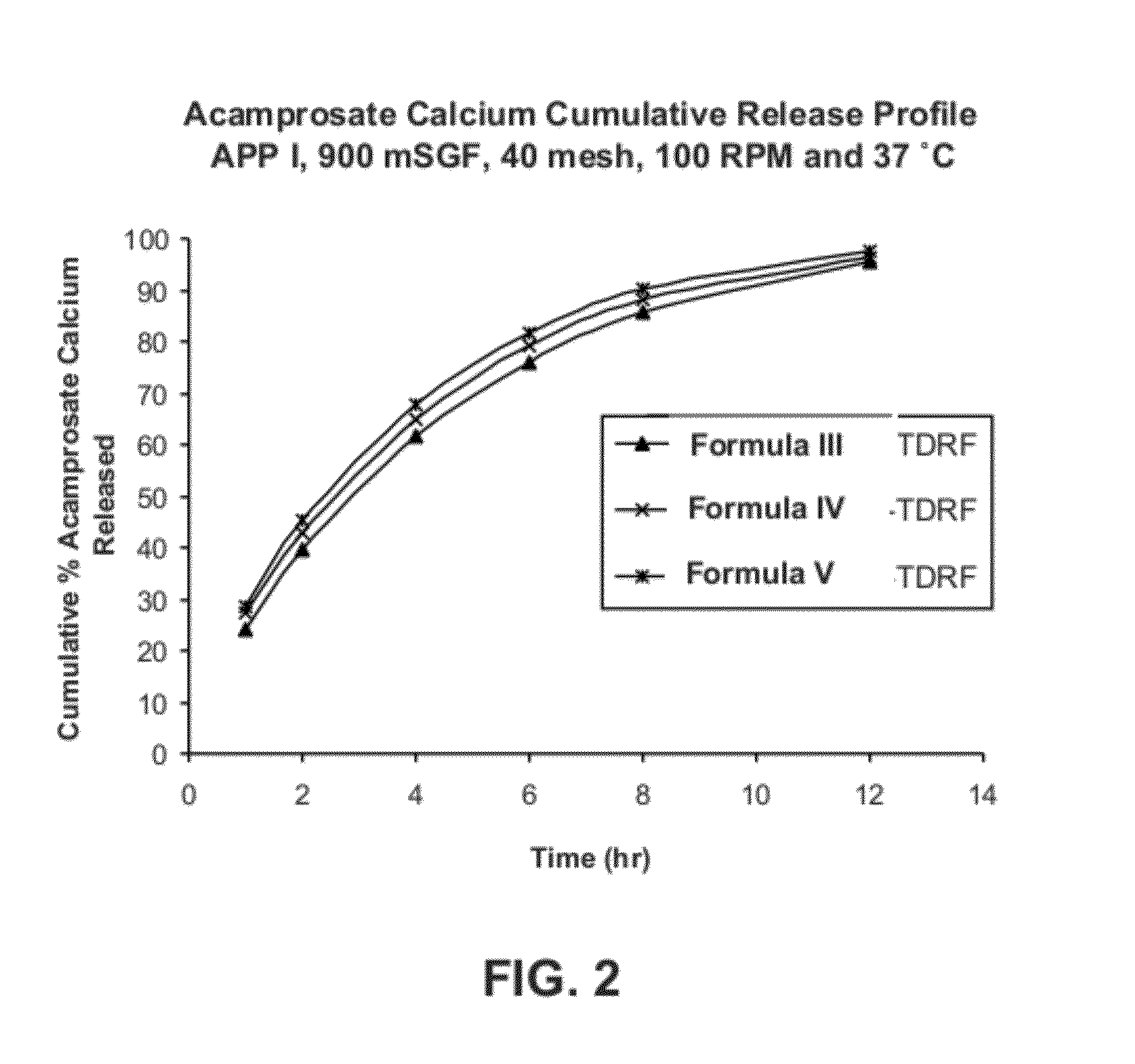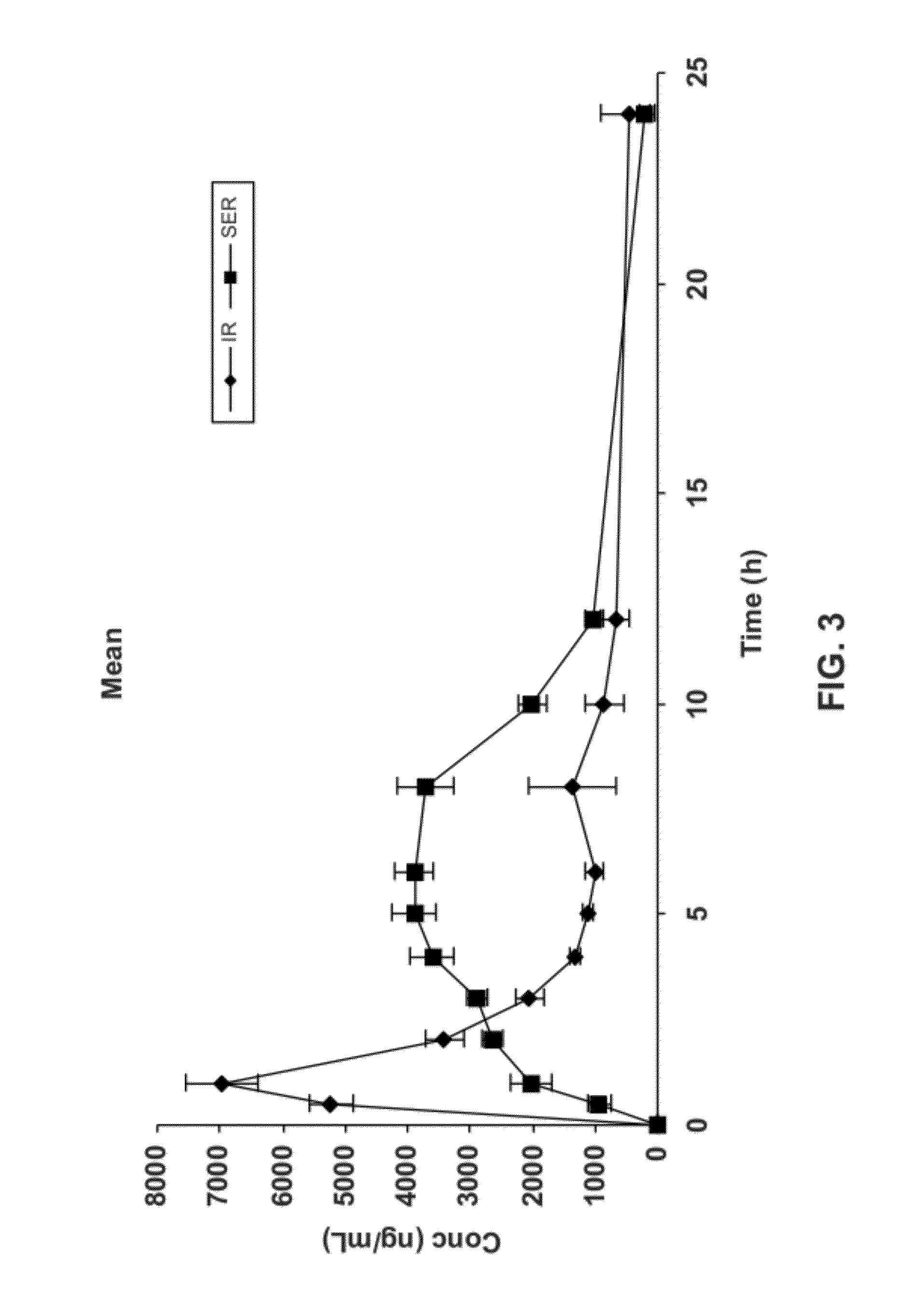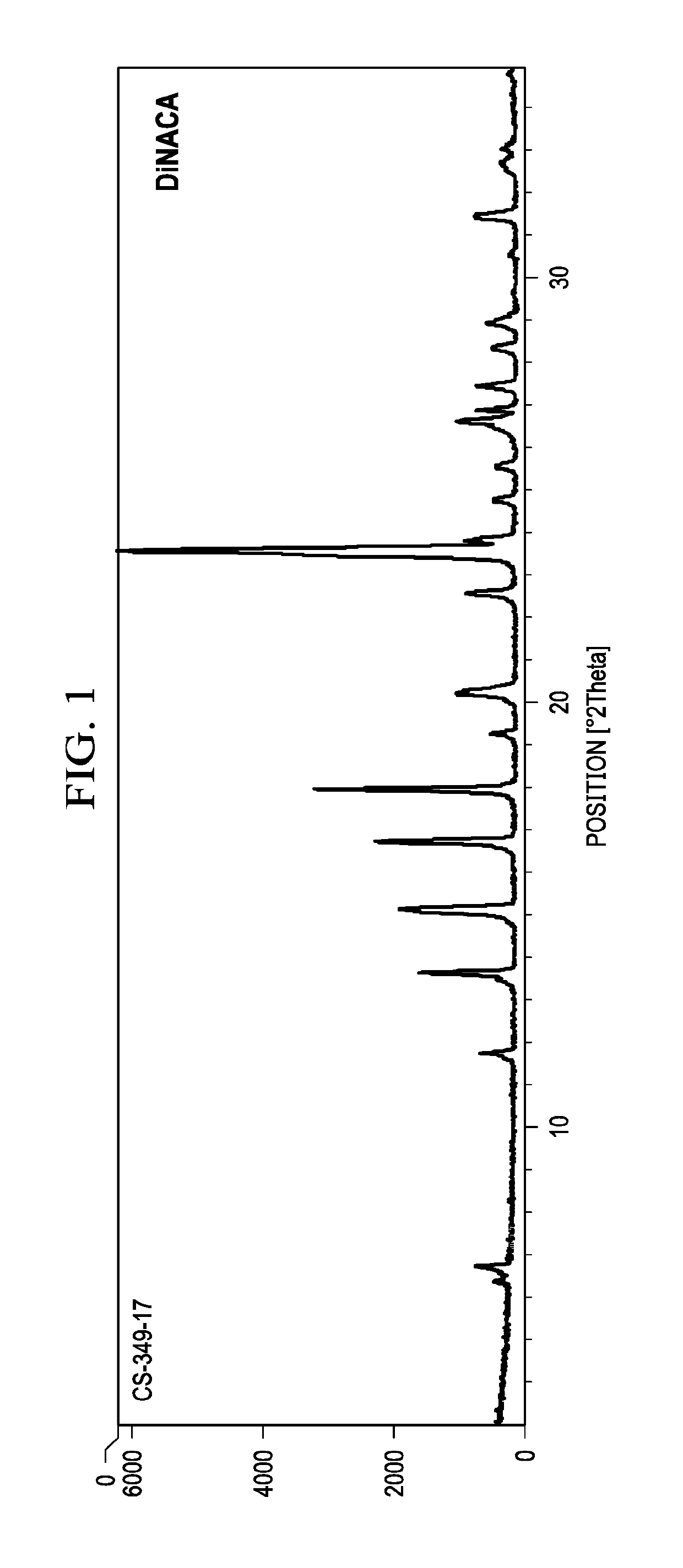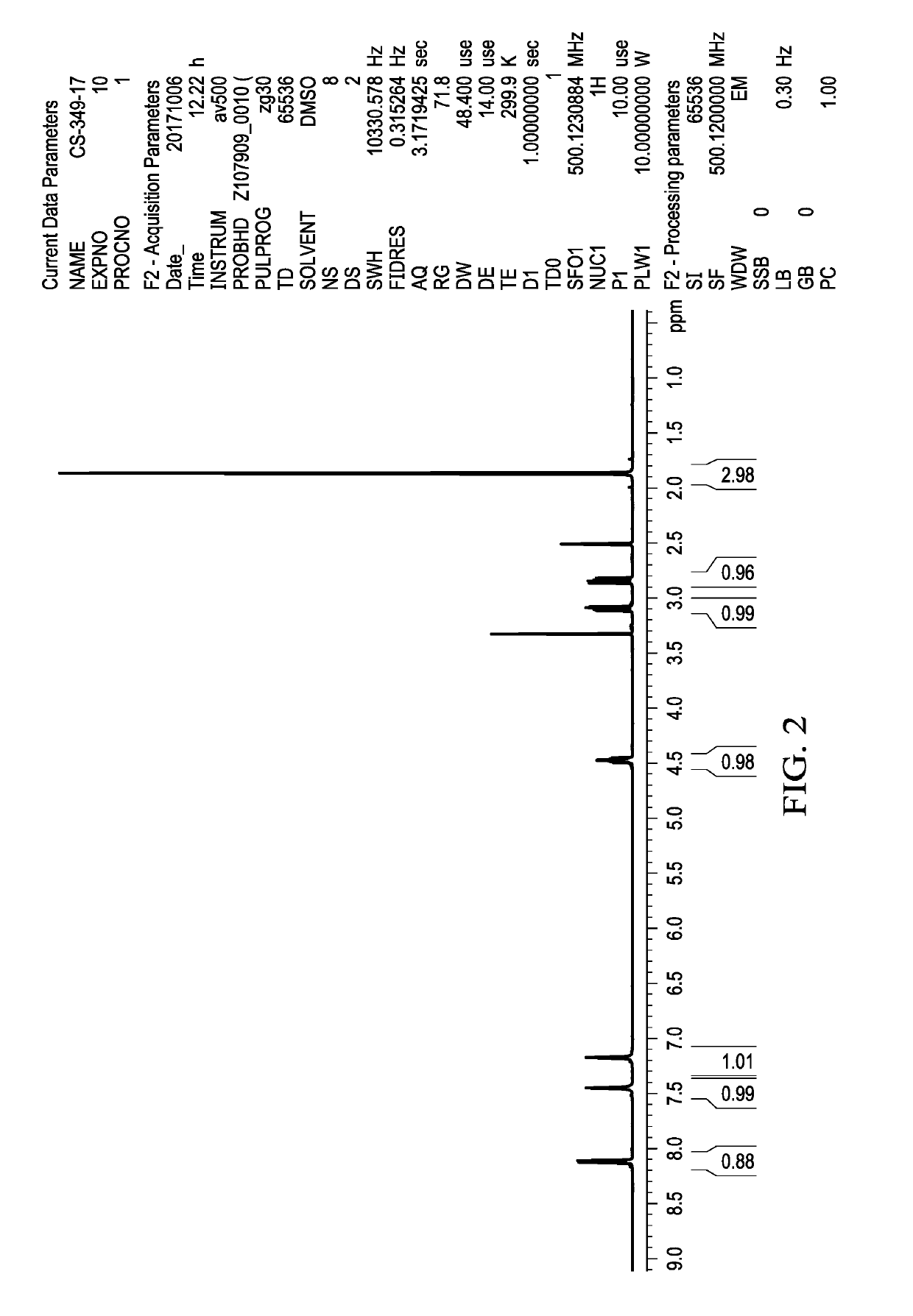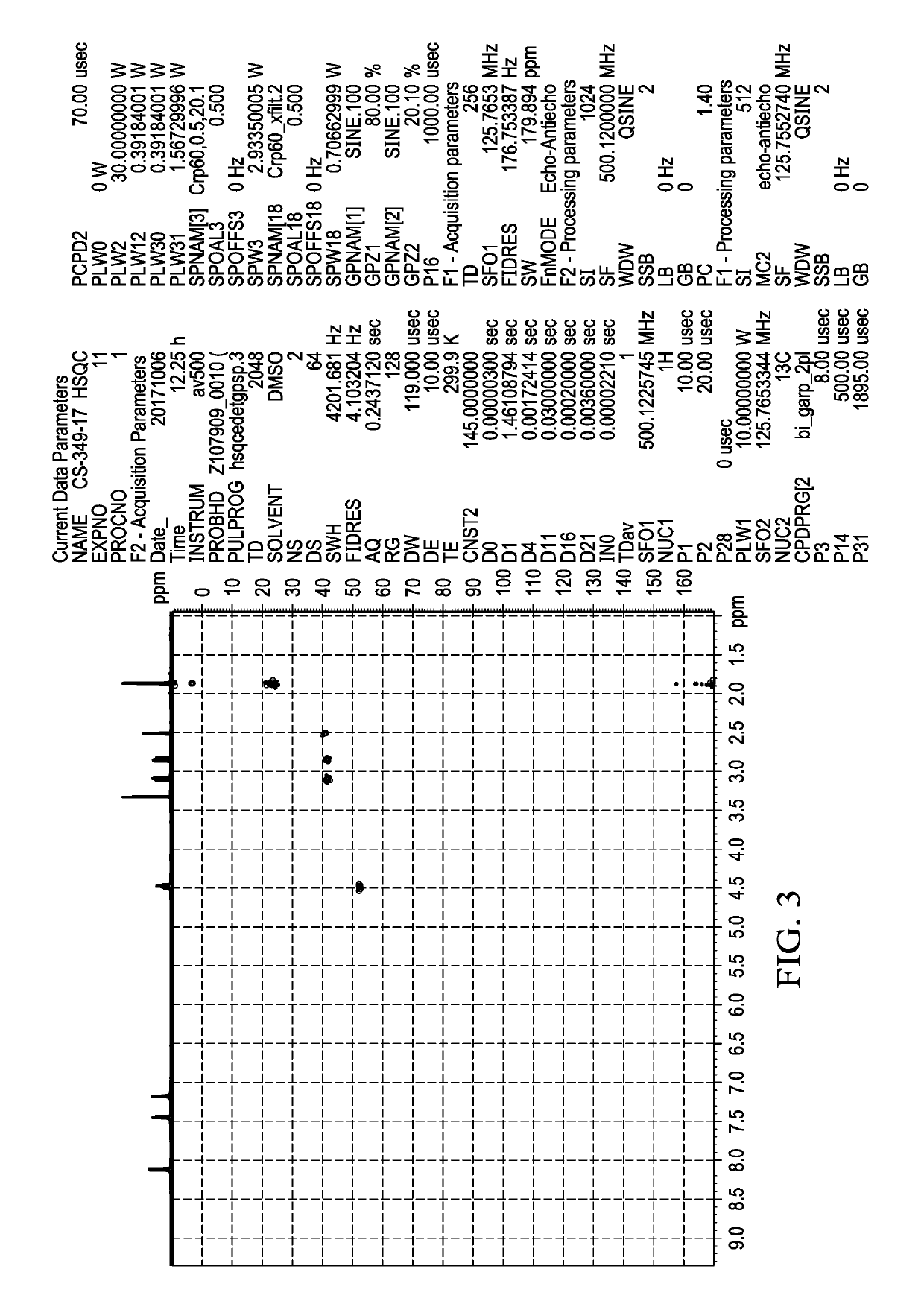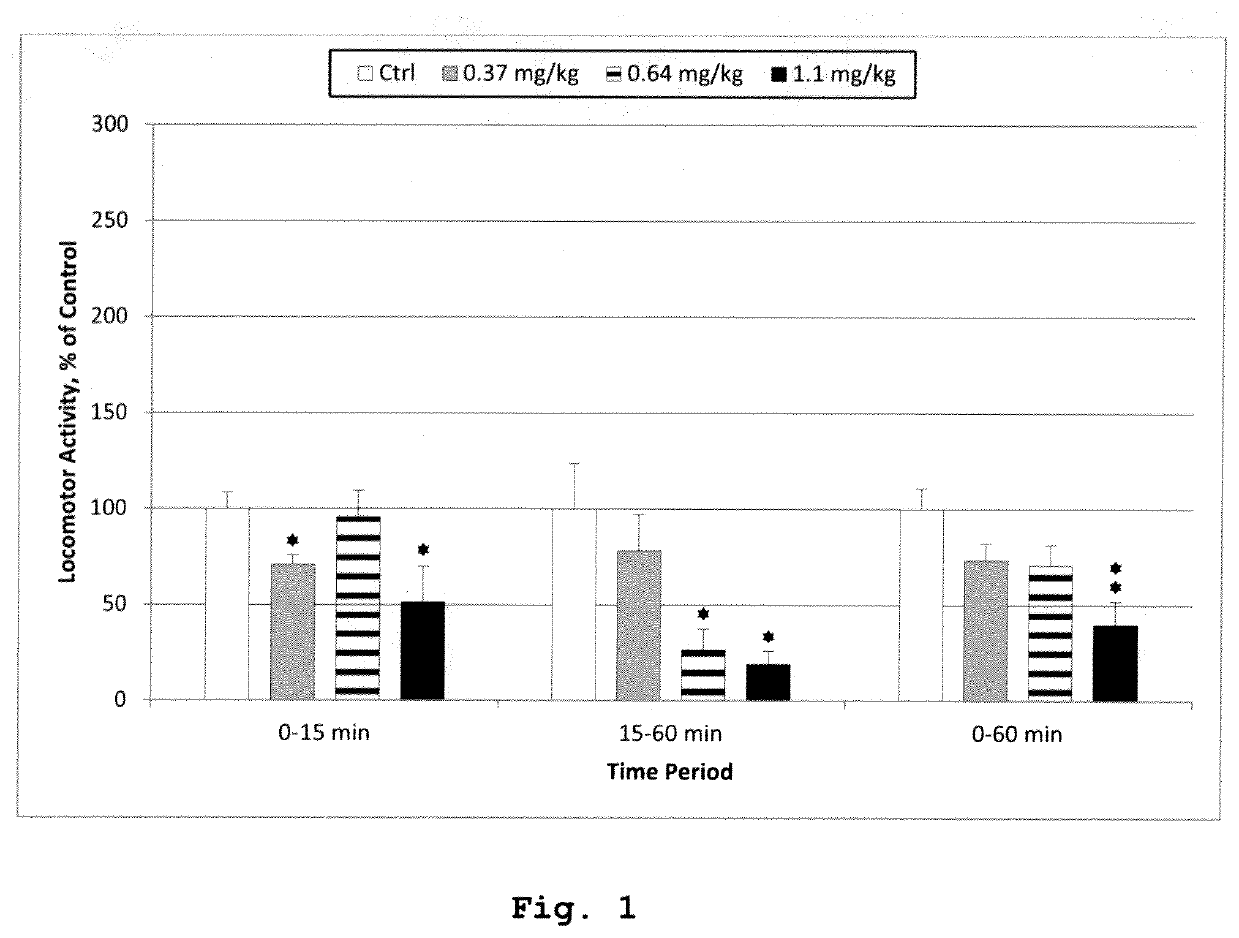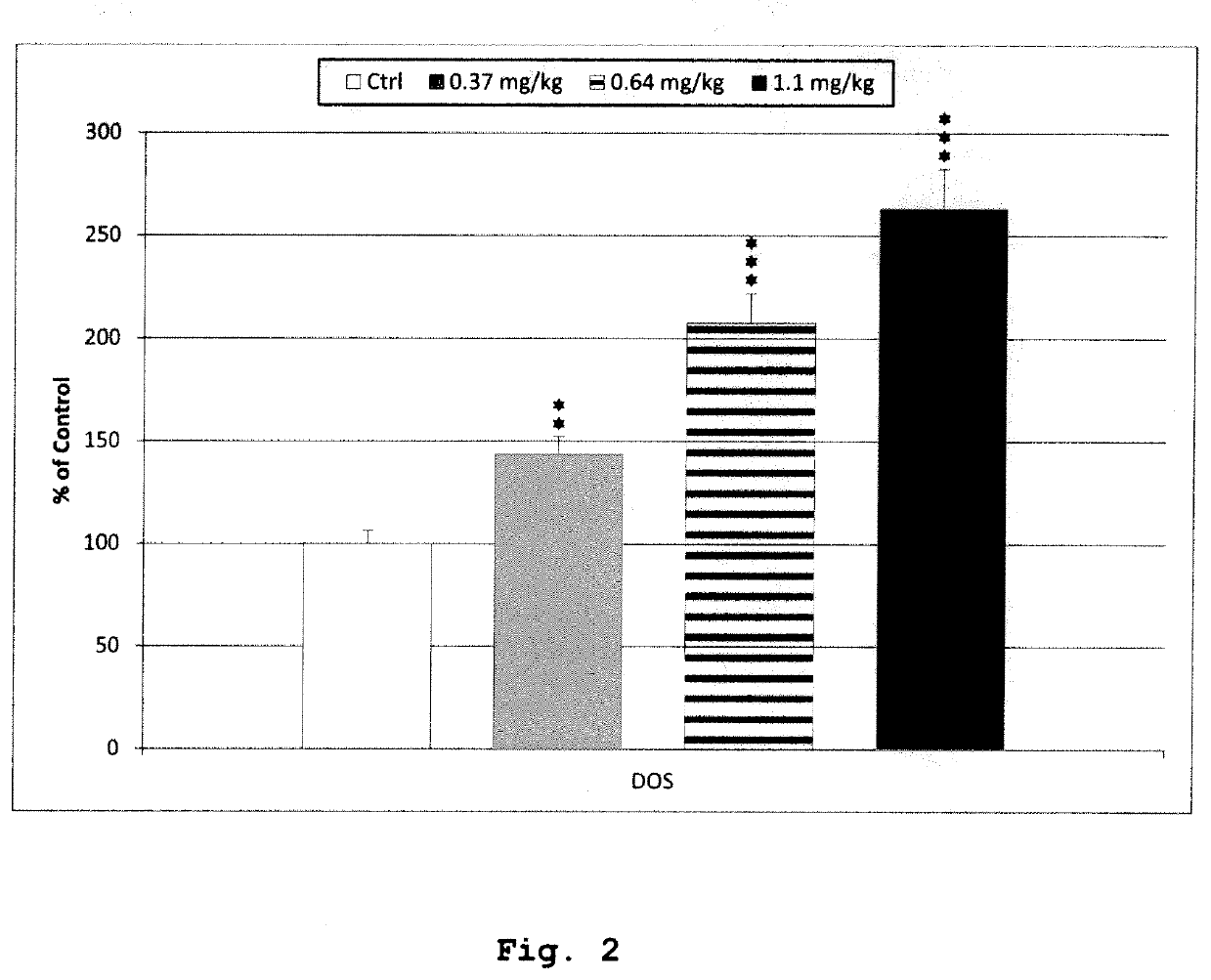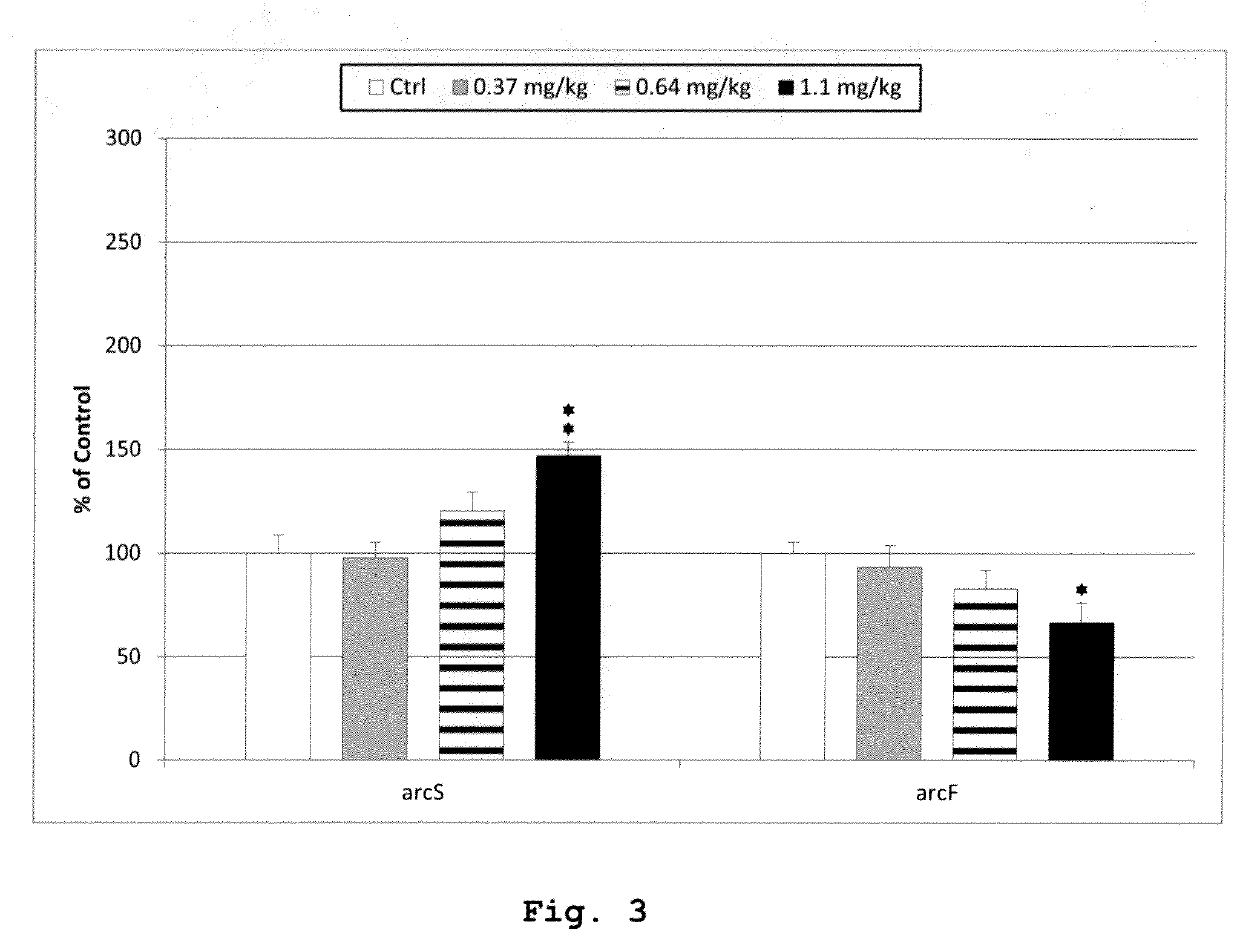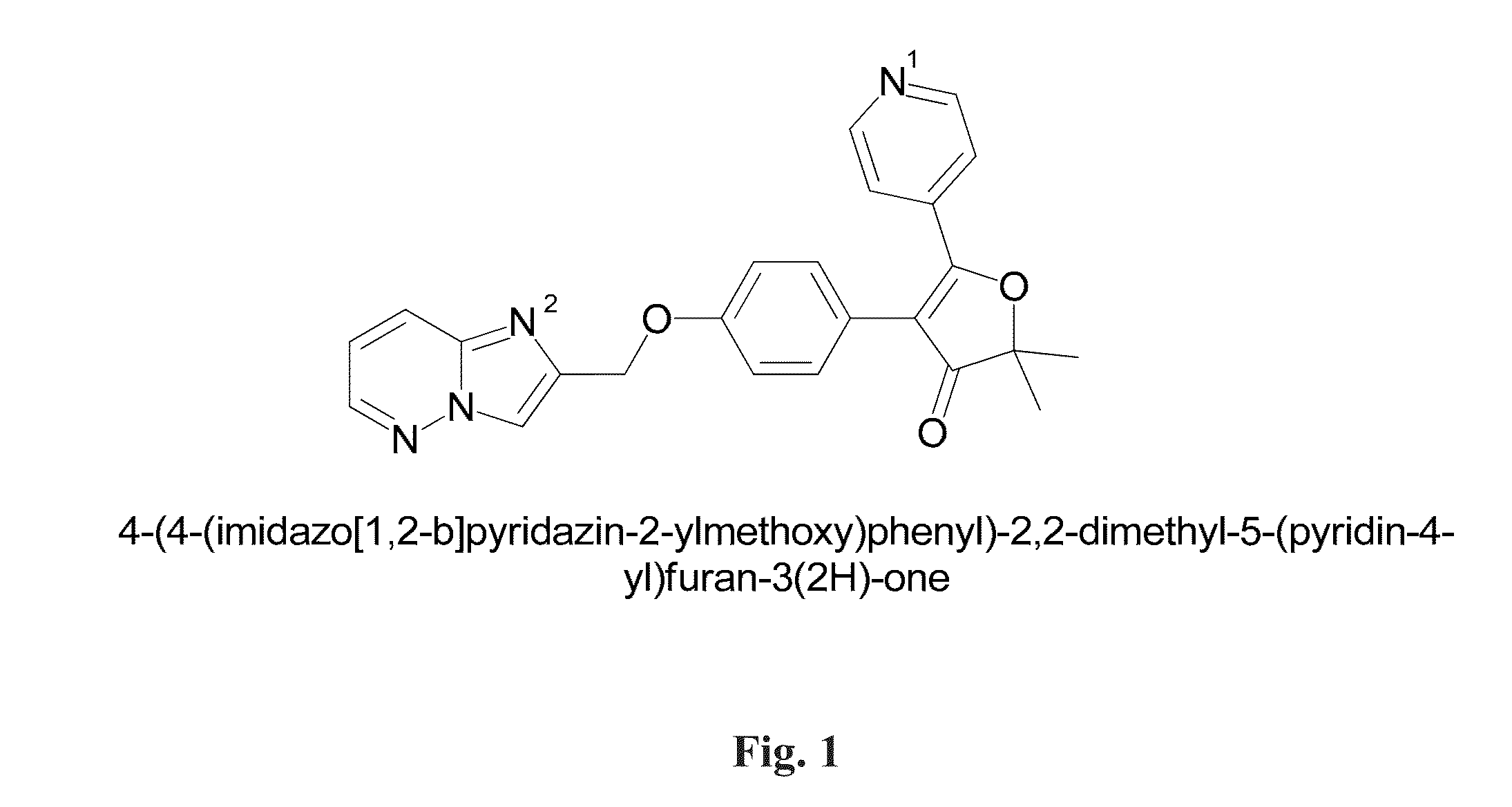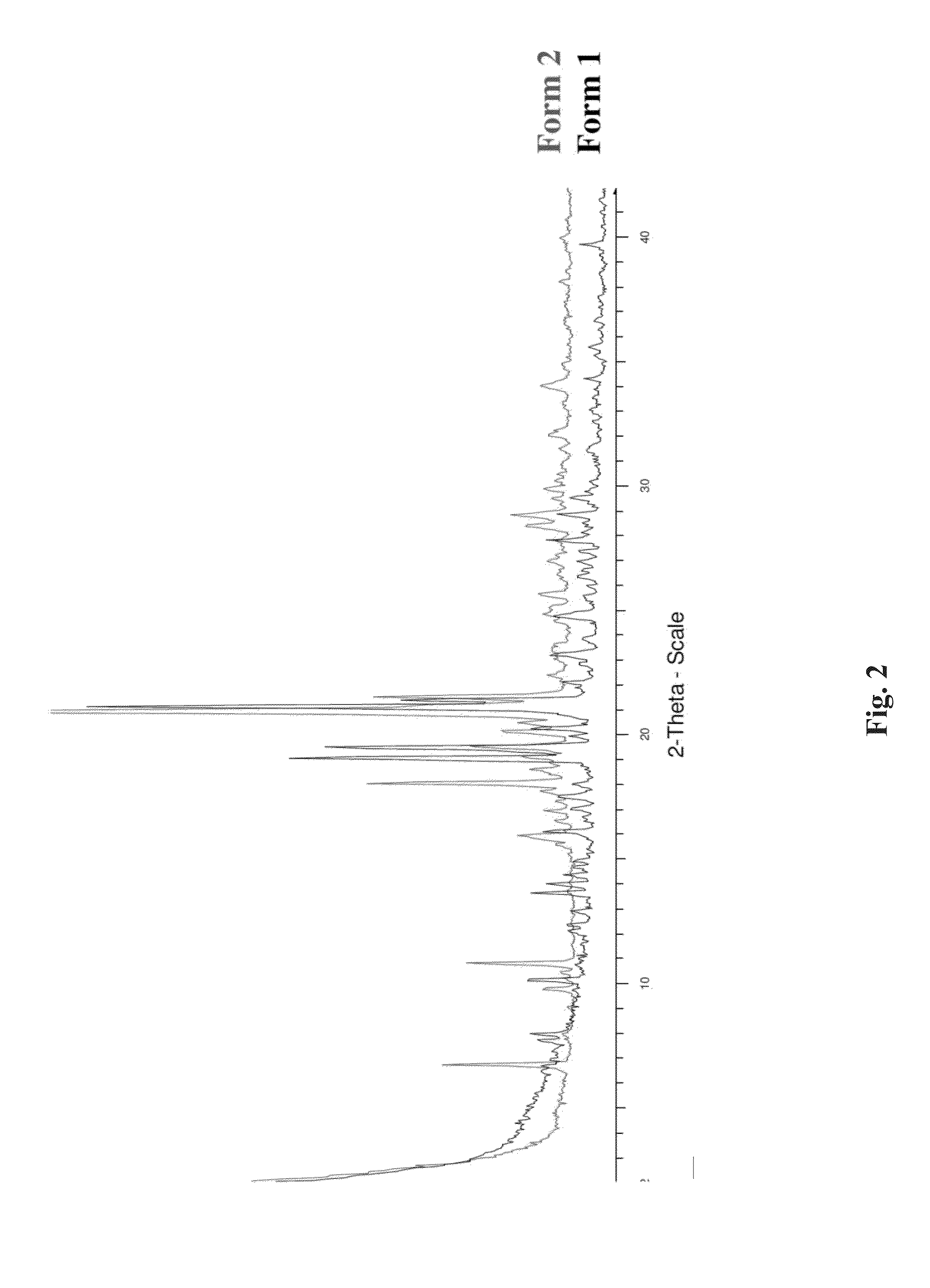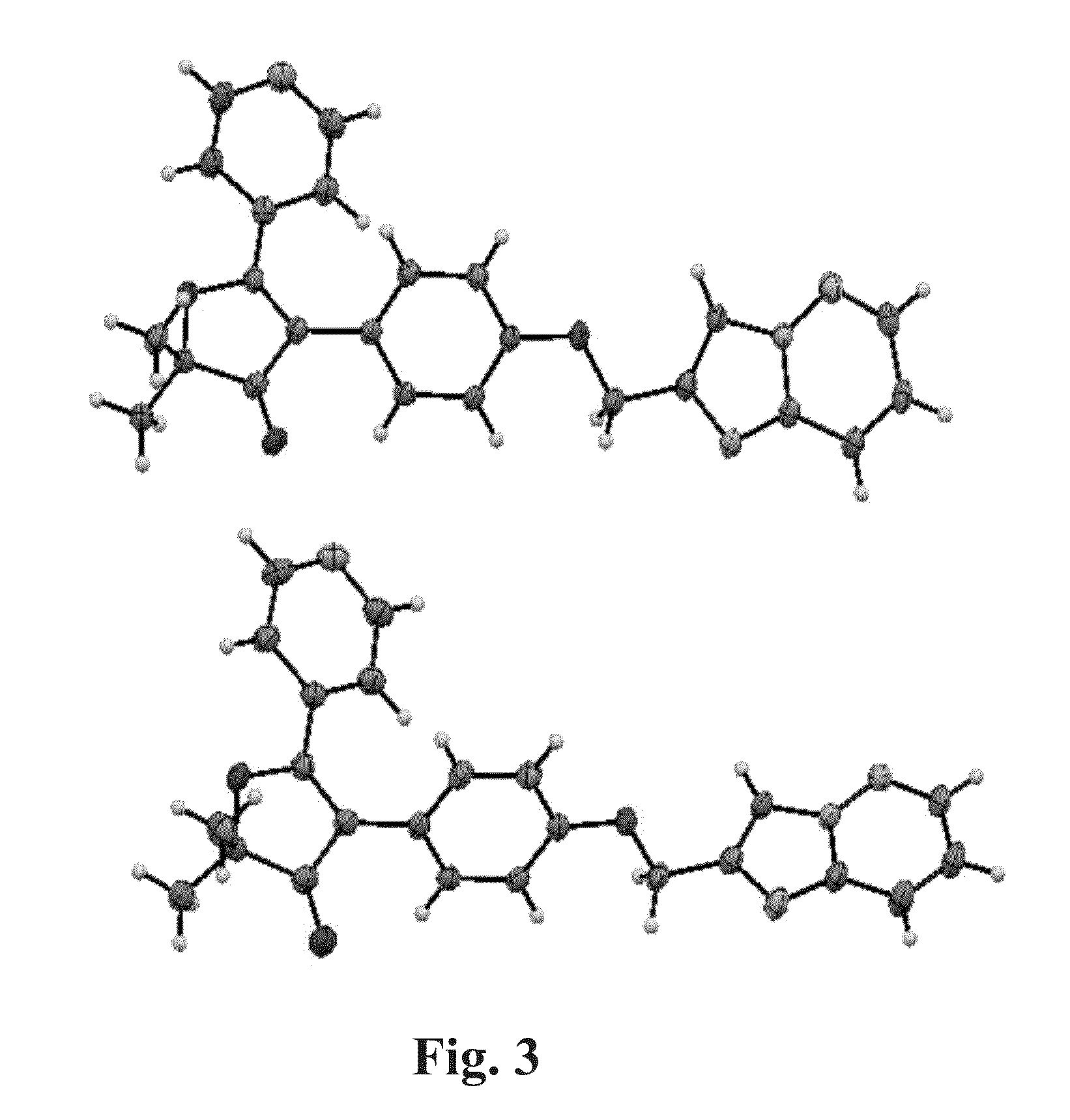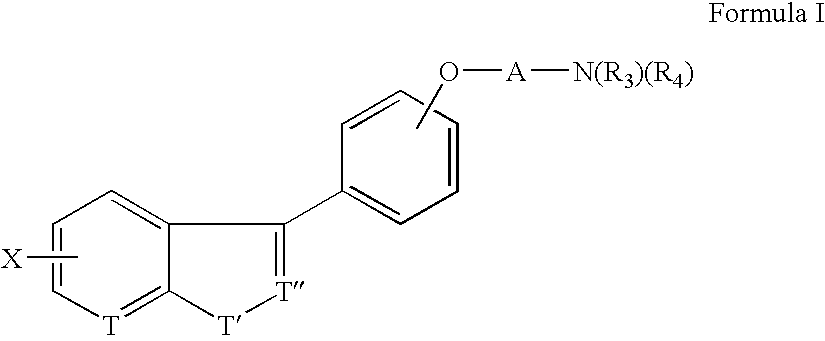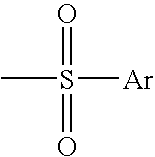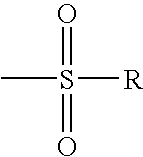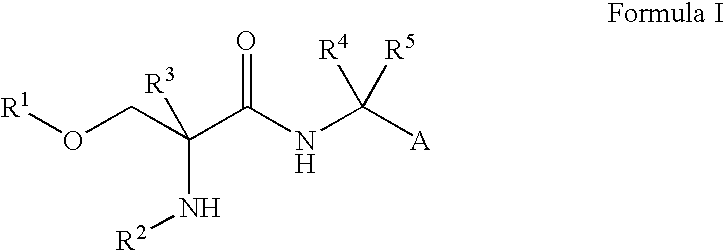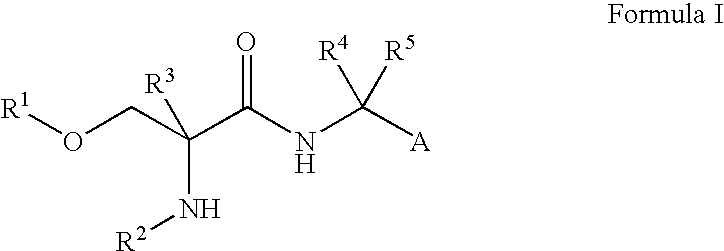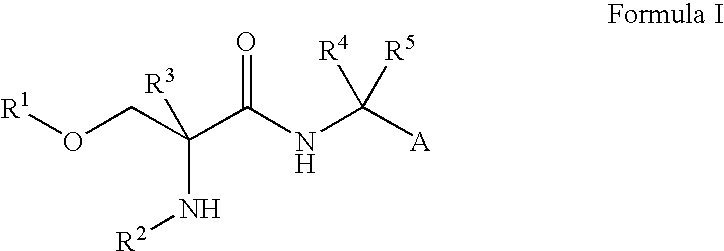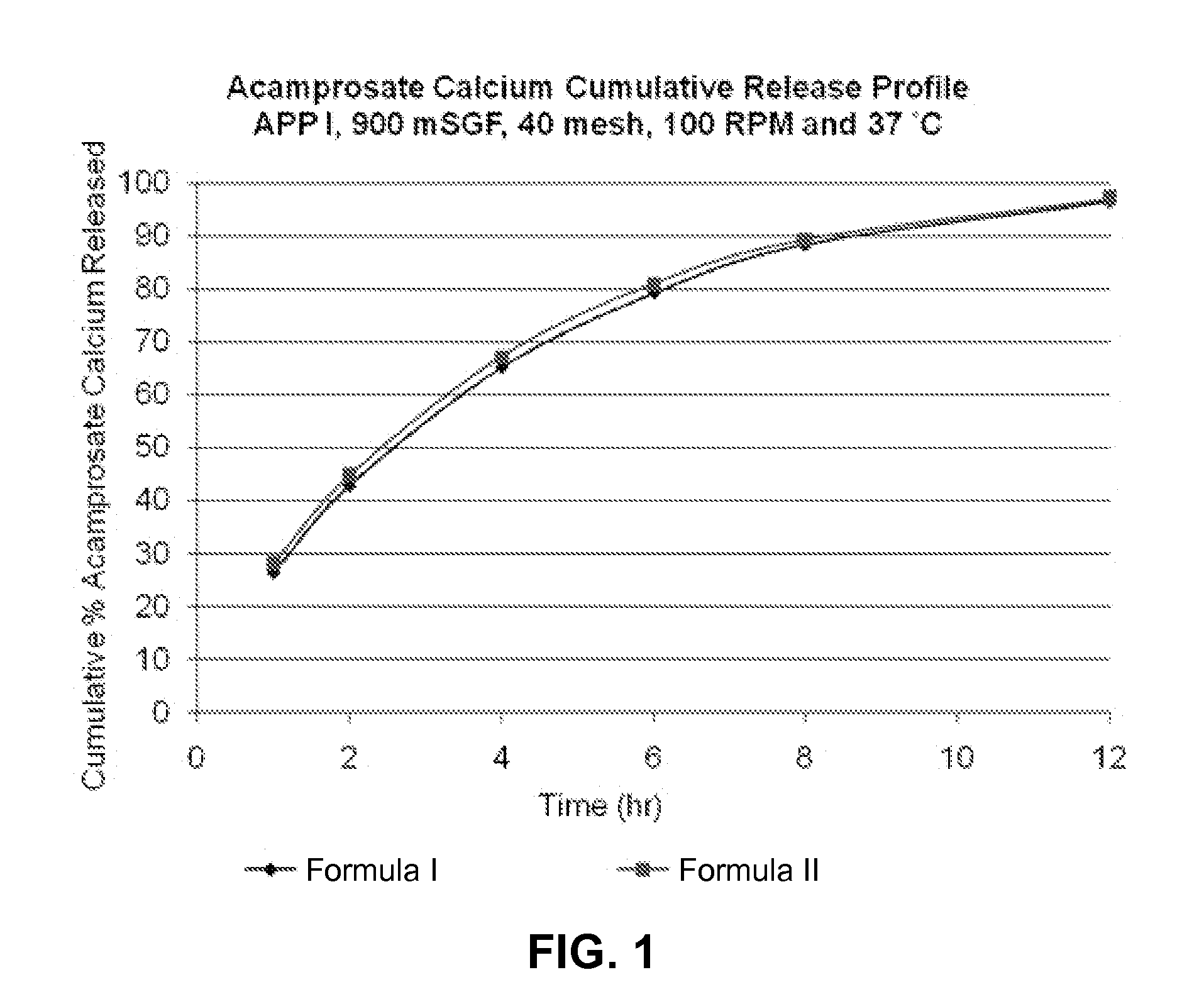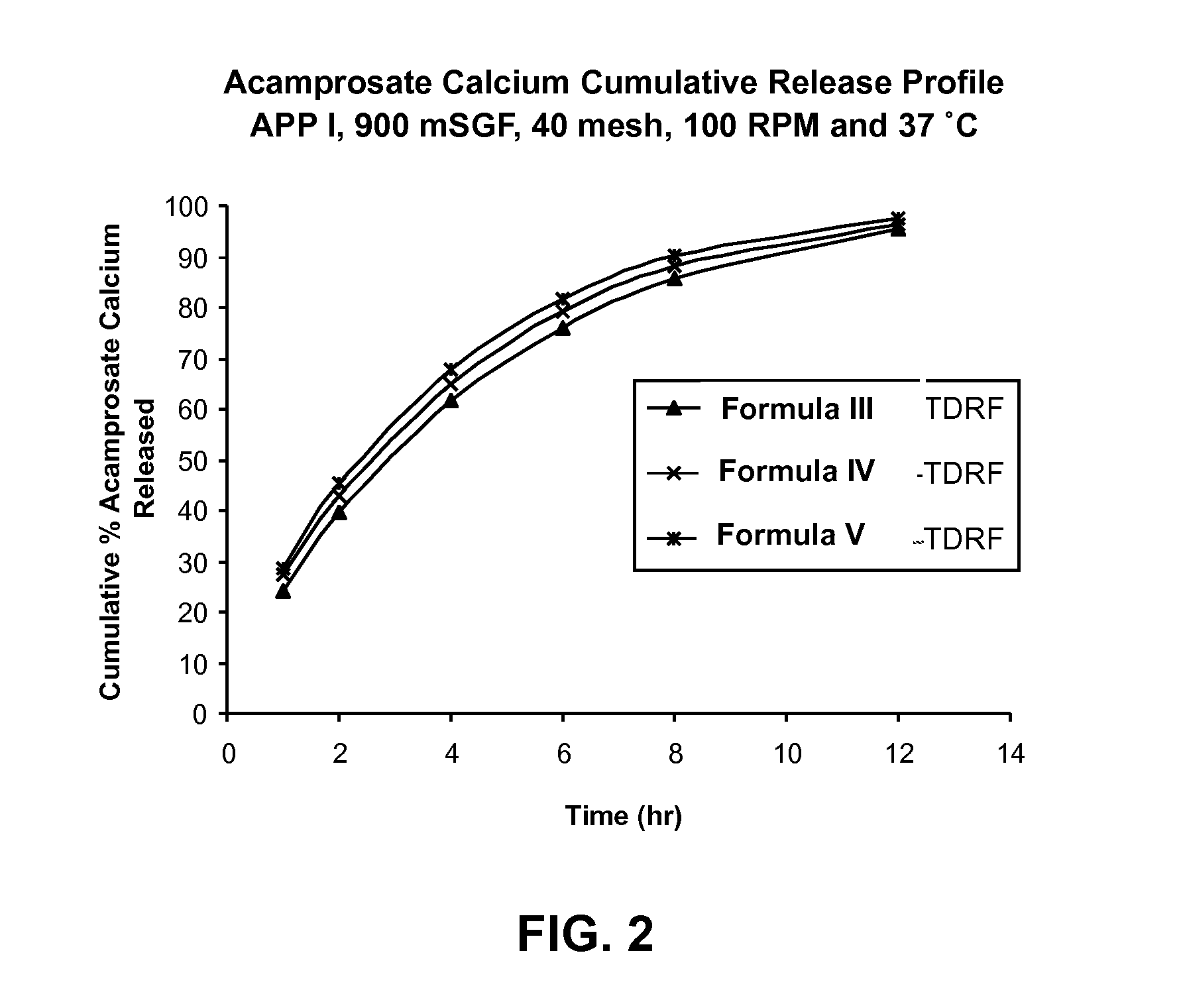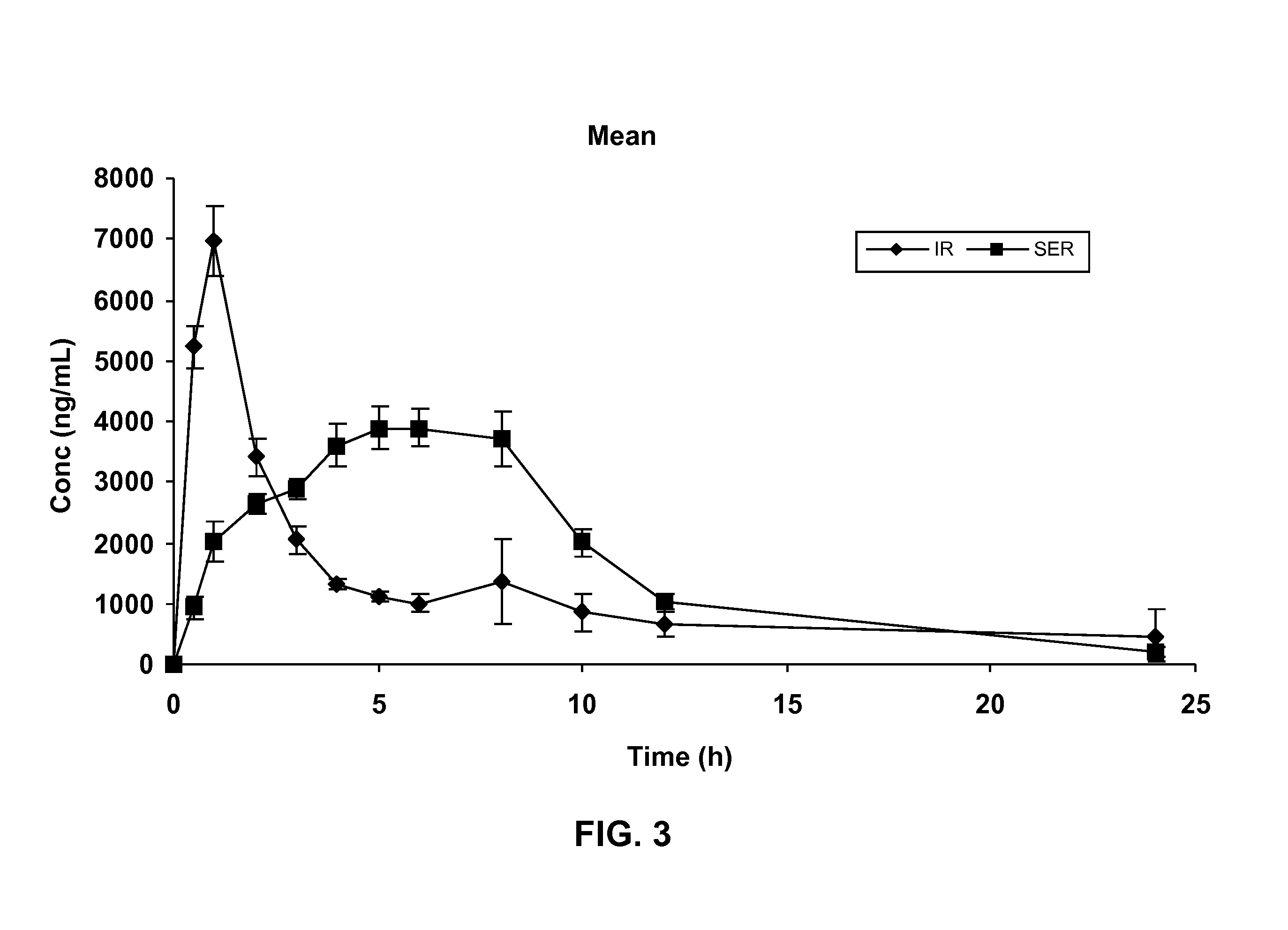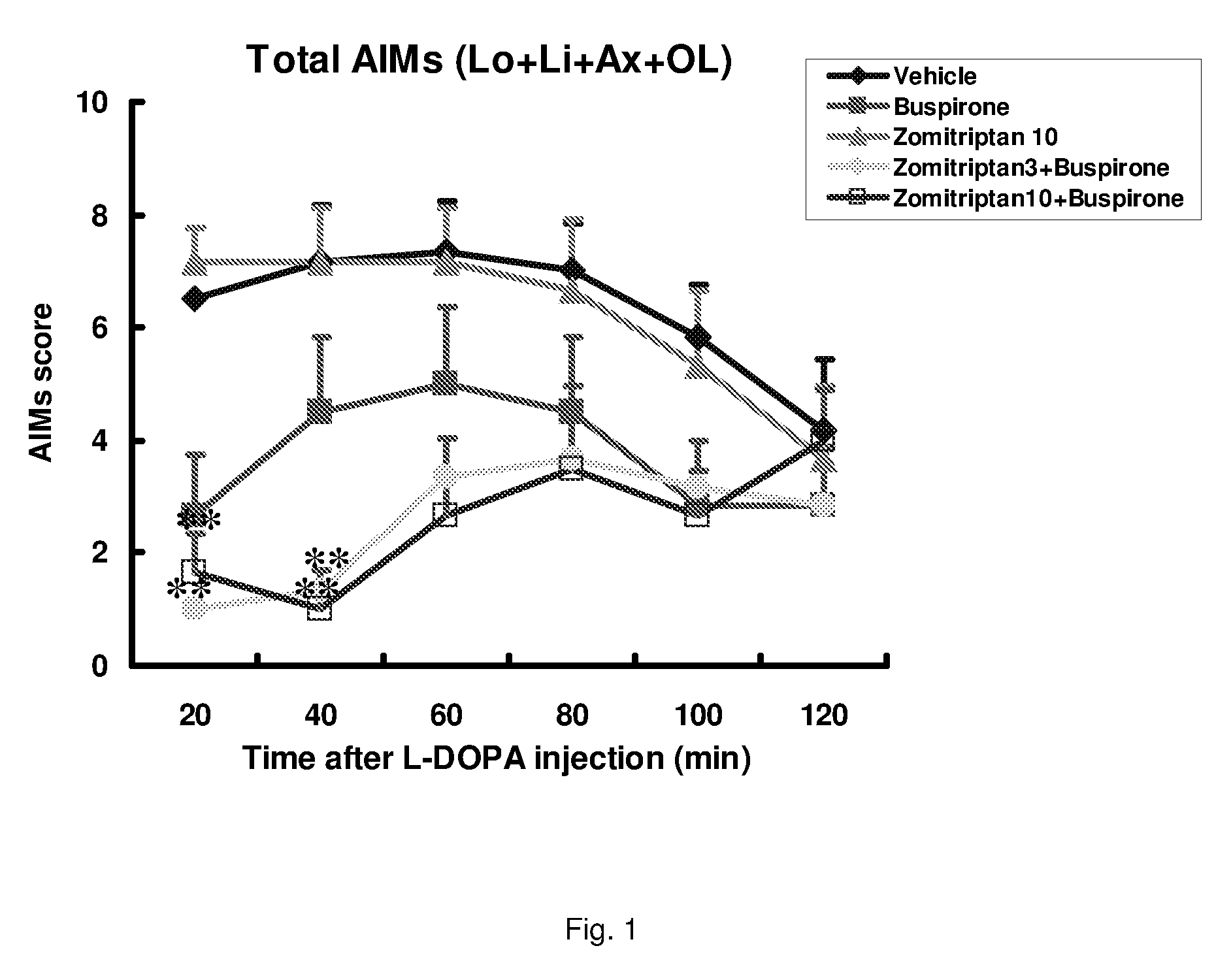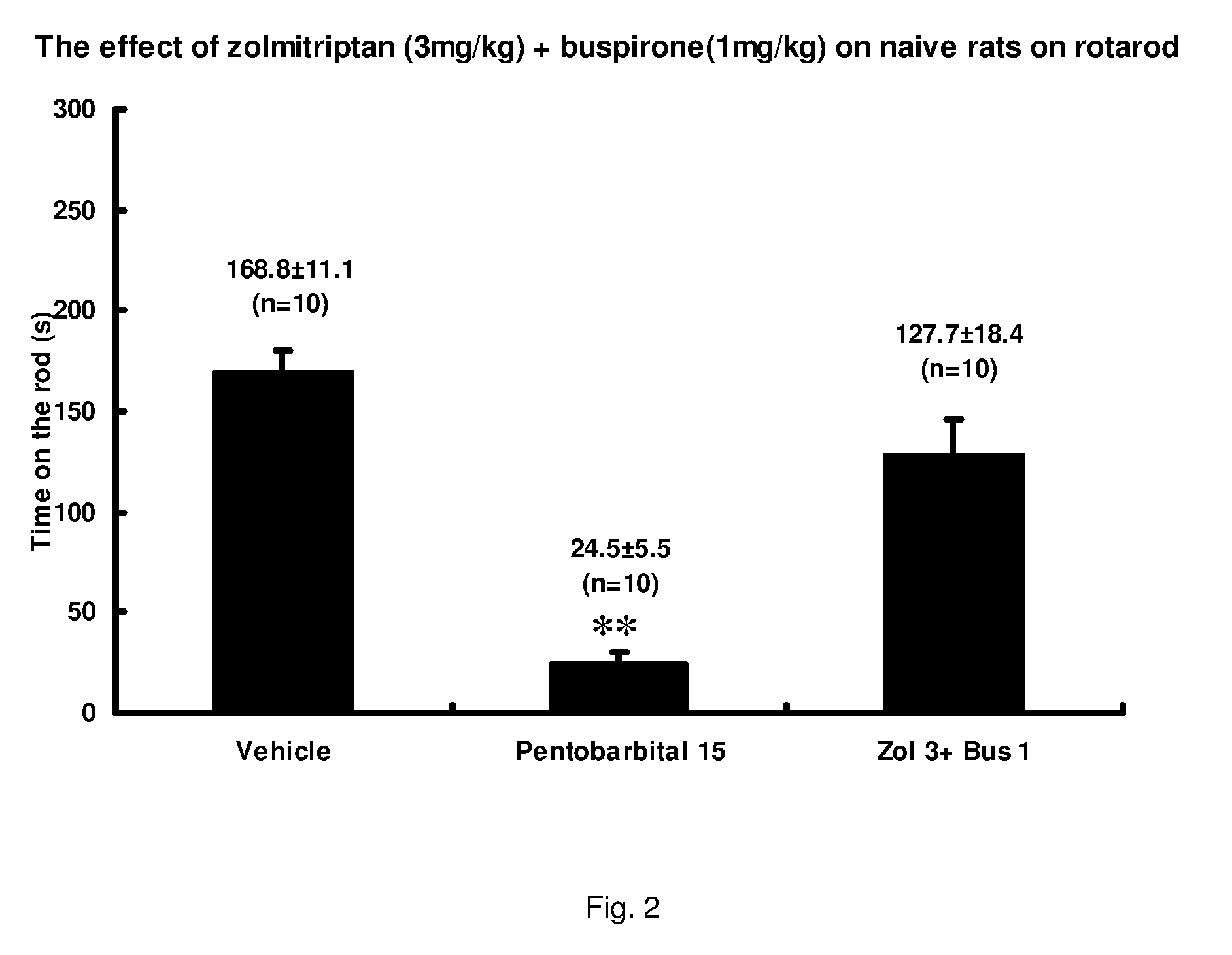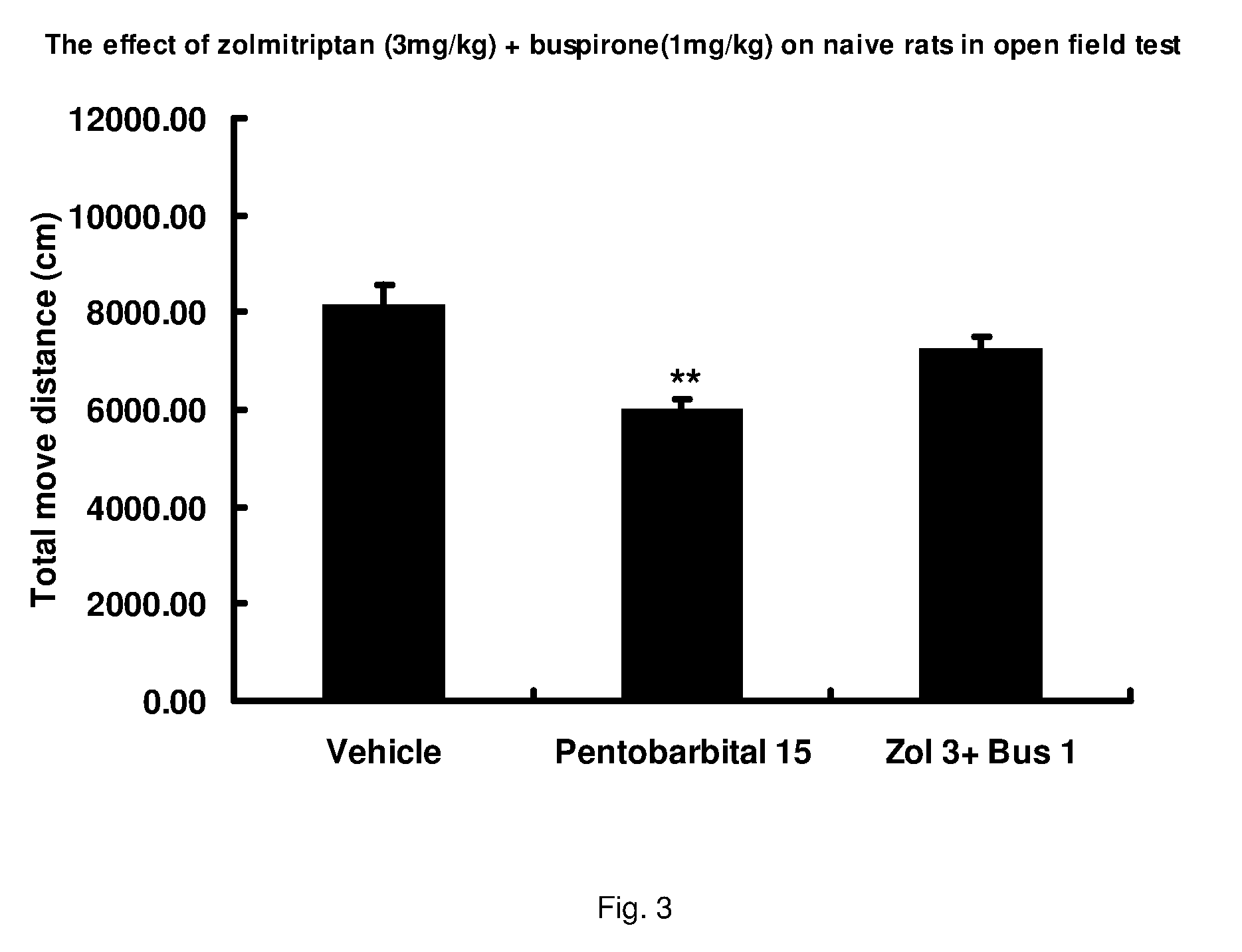Patents
Literature
Hiro is an intelligent assistant for R&D personnel, combined with Patent DNA, to facilitate innovative research.
54 results about "Tardive dyskinesia" patented technology
Efficacy Topic
Property
Owner
Technical Advancement
Application Domain
Technology Topic
Technology Field Word
Patent Country/Region
Patent Type
Patent Status
Application Year
Inventor
A neurological syndrome that results in involuntary and repetitive body movements.
Composition and method for reducing the risk or progression of cardiovascular, glaucoma, tardive dyskinesia and other diseases
InactiveUS20040087479A1Reduce riskShorten the progressBiocideOrganic active ingredientsBeta-CaroteneAdditive ingredient
Elevated levels of homocysteine have been implicated as an important risk factor for cardiovascular and other diseases. A composition for decreasing levels of plasma homocysteine and a method for administering the composition are provided, the composition containing dextromethorphan (DM), folic acid and vitamins B6 and B12. The composition provides a synergistic therapeutic effect so that lower amounts of the above ingredients may be employed to minimize any undesirable side effects caused by the use of high levels of a component such as DM. Preferred compositions for cardiovascular diseases further include lecithin, vitamin E, betacarotene, procyanidins / flavonoids, trimethylglycine, garlic oil and minerals. Other compositions for treating glaucoma include bilberry, bioflavonoids and beta-carotene and for treating tardive dyskinesia include an antioxidant such a grape seed extract and pine bark extract, lecithin and oligomeric proanthocyanidins. The compositions may be administered using any suitable means such as orally or intravenous.
Owner:SOSNOWSKI ROBERT E +1
Novel 4-phenyl substituted tetrahydroisoquinolines and therapeutic use thereof
The present invention relates to a method of treating disorders including cognition impairment, generalized anxiety disorder, acute stress disorder, social phobia, simple phobias, pre-menstrual dysphoric disorder, social anxiety disorder, major depressive disorder, eating disorders, obesity, anorexia nervosa, bulimia nervosa, binge eating disorder, substance abuse disorders, chemical dependencies, nicotine addiction, cocaine addiction, alcohol addiction, amphetamine addiction, Lesch-Nyhan syndrome, neurodegenerative diseases, late luteal phase syndrome, narcolepsy, psychiatric symptoms anger, rejection sensitivity, movement disorders, extrapyramidal syndrome, Tic disorder, restless leg syndrome, tardive dyskinesia, sleep related eating disorder, night eating syndrome, stress urinary incontinence, migraine, neuropathic pain, diabetic neuropathy, fibromyalgia syndrome, chronic fatigue syndrome, sexual dysfunction, premature ejaculation, and male impotence. This method involves administering to a patient in need of such treatment a therapeutically effective amount of a disclosed compound. Such compounds are 4-phenyl substituted tetrahydroisoquinolines having the Formula IA, IB, IIA, IIB, IIIA or IIIC as set forth herein.
Owner:ALBANY MOLECULAR RESEARCH INC
Novel 4-phenyl substituted tetrahydroisoquinolines and therapeutic use thereof
The present invention relates to a method of treating disorders including cognition impairment, generalized anxiety disorder, acute stress disorder, social phobia, simple phobias, pre-menstrual dysphoric disorder, social anxiety disorder, major depressive disorder, eating disorders, obesity, anorexia nervosa, bulimia nervosa, binge eating disorder, substance abuse disorders, chemical dependencies, nicotine addiction, cocaine addiction, alcohol addiction, amphetamine addiction, Lesch-Nyhan syndrome, neurodegenerative diseases, late luteal phase syndrome, narcolepsy, psychiatric symptoms anger, rejection sensitivity, movement disorders, extrapyramidal syndrome, Tic disorder, restless leg syndrome, tardive dyskinesia, sleep related eating disorder, night eating syndrome, stress urinary incontinence, migraine, neuropathic pain, diabetic neuropathy, fibromyalgia syndrome, chronic fatigue syndrome, sexual dysfunction, premature ejaculation, and male impotence. This method involves administering to a patient in need of such treatment a therapeutically effective amount of a disclosed compound. Such compounds are 4-phenyl substituted tetrahydroisoquinolines having the Formula IA, IB, IIA, IIB, IIIA or IIIC as set forth herein.
Owner:ALBANY MOLECULAR RESEARCH INC
Dihydrotetrabenazines And Pharmaceutical Compositions Containing Them
The invention provides novel isomers of dihydrotetrabenazine, individual enantiomers and mixtures thereof wherein the dihydrotetrabenazine is a 3,11 b-cis-dihydrotetrabenazine. Also provided are methods for the preparation of the novel isomers, pharmaceutical compositions containing them and their use in treating hyperkinetic movement disorders such as Huntington's disease, hemiballismus, senile chorea, tic, tardive dyskinesia and Tourette's syndrome.
Owner:VALEANT INT BARBADOS
Gastric retentive dosage forms for extended release of acamprosate into the upper gastrointestinal tract
Gastric retentive dosage forms for sustained release of acamprosate are described which may allow once- or twice-daily dosing for both acute and long-term treatment of a disorder including alcohol dependence, tinnitus, sleep apnea, Parkinson's disease, levodopa-induced dyskinesias in Parkinson's disease, Alzheimer's disease, Huntington's disease, Amyotrophic lateral sclerosis, Cortical spreading depression, migraine, schizophrenia, anxiety, tardive dyskinesia, spasticity, multiple sclerosis, various types pain, or binge eating. Methods of treatment using the dosage forms and methods of making the dosage forms are also described.
Owner:DEPOMED SYST INC
Methods of treating tardive dyskinesia and other movement disorders
InactiveUS7498361B2Decreases postsynaptic responseSpread the wordBiocideHydroxy compound active ingredientsNR1 NMDA receptorAcamprosate
The present invention describes a novel treatment for movement disorders, including tardive dyskinesia, tic disorders, Tourette's syndrome, and blepharospasm, and other focal dystonias. The treatment of the present invention utilizes agents that simultaneously act as NMDA-type glutamate receptor antagonists and GABA-A receptor agonists. Preferably these two activities are characteristic of a single agent, for example acamprosate. Alternatively, separate agents having these activities can be combined and administered together. The invention also provides a third agent that acts as a non-competitive NMDA-receptor blocking agent or ion channel blocker that augments the effect of the primary treatment. A particularly preferred ion channel blocking agent is magnesium. Alternatively, magnesium can be administered alone for prevention and treatment of movement disorders.
Owner:SYNCHRONEURON
Treatment of hyperkinetic movement disorders
Methods for treating hyperkinetic diseases and disorders, such as tardive dyskinesia, are provided. In a certain embodiment, the potent VMAT2 inhibitor (+)α-3-isobutyl-9,10-dimethoxy-1,3,4,6,7,11b-hexahydro-2H-pyrido[2,1-a]isoquinolin-2-ol ((+)α-HTBZ) is used in the methods described herein for treating a subject in need thereof.
Owner:NEUROCRINE BIOSCI INC
Use of N-desmethylclozapine and related compounds as dopamine stabilizing agents
InactiveUS20060252744A1Reduce exposureMany symptomBiocideNervous disorderPsychosis drugNeuropsychiatric disease
Disclosed herein is the use of N-desmethylclozapine (NDMC) and related compounds to treat a variety of neuropsychiatric diseases including psychosis. It is shown that NDMC and related compounds are agonists or partial agonists at D2 and D3 dopamine receptors and thus may be effective as a dopamine stabilizing agent, allowing it to be used to treat or provide reduced incidence of Extrapyramidal symptoms (EPS) and / or tardive dyskinesias (TD). Also disclosed is administering NDMC and related compounds in combination with other anti-psychotic agents.
Owner:ACADIA PHARMA INC
Treatment of hyperkinetic movement disorders
Methods for treating hyperkinetic diseases and disorders, such as tardive dyskinesia, are provided. In a certain embodiment, the potent VMAT2 inhibitor (+)α-3-isobutyl-9,10-dimethoxy-1,3,4,6,7,11b-hexahydro-2H-pyrido[2,1-a]isoquinolin-2-ol ((+)α-HTBZ) is used in the methods described herein for treating a subject in need thereof.
Owner:NEUROCRINE BIOSCI INC
Pyridone-fused azabicyclic- or cytisine derivatives, their preparation and their use in addiction therapy
InactiveUS6630467B2Reduce addictionLessing of tobacco useBiocideNervous disorderUlcerative colitisAzabicyclo Compounds
Owner:PFIZER INC
Thienoisoxazolyl-and thienylpyrrazolyl phenoxy substituted propyl derivatives useful as d4 antagonists
The compounds are of the class thienoisoxazolyl- and thienylpyrrazolyl-phenoxy substituted propyl derivatives, useful as D4 antagonists. Said compounds are useful for the treatment of medical conditions mediated by inhibition of D4 receptor. These conditions comprise, for example, Attention Deficit Hyperactivity Disorder, Obsessive-Compulsive Disorder, Psychoses, Substance Abuse, Substance Dependence, Parkinson's Disease, Parkinsonism, Tardive Diskinesia, Gilles de la Tourette Syndrome, Conduct Disorder, and Oppositional Defiant Disorder. A further aspect of the invention is to provide a pharmaceutical composition, intermediates, and a method of making said class of compounds.
Owner:AVENTISUB II INC
Dihydrotetrabenazines and pharmaceutical compositions containing them.
The invention provides novel isomers of dihydrotetrabenazine, individual enantiomers and mixtures thereof wherein the dihydrotetrabenazine is a 3,11 b-cis- dihydrotetrabenazine. Also provided are methods for the preparation of the novel isomers, pharmaceutical compositions containing them and their use in treating hyperkinetic movement disorders such as Huntington's disease, hemiballismus, senile chorea, tic, tardive dyskinesia and Tourette's syndrome.
Owner:BIOVAIL LAB INT BARBADOS
Composition and method for reducing the risk or progression of cardiovascular, glaucoma and tardive dyskinesia diseases
InactiveUS20030220225A1Reduce riskShorten the progressBiocideOrganic active ingredientsBeta-CaroteneAdditive ingredient
Elevated levels of homocysteine have been implicated as an important risk factor for cardiovascular and other diseases. A composition for decreasing levels of plasma homocysteine and a method for administering the composition are provided the composition containing dextromethorphan (DM), folic acid and vitamins B6 and B12. The composition provides a synergistic therapeutic effect so that lower amounts of the above ingredients may be employed to minimize any undesirable side effects caused by the use of high levels of a component such as DM. Preferred compositions for cardiovascular diseases further include lecithin, vitamin E, beta-carotene, procyanidins / flavonoids, trimethylglycine, garlic oil and minerals. Other compositions for treating glaucoma include bilberry, bioflavonoids and beta-carotene and for treating tardive dyskinesia include an antioxidant such as grape seed extract and pine bark extract, lecithin and oligomeric proanthocyanidins. The compositions may be administered using any suitable means such as orally or intravenous.
Owner:SOSNOWSKI ROBERT E +1
Methods of treating tardive dyskinesia and other movement disorders
InactiveUS20060128802A1Enhances GABA-A transmissionDecreased cellular responseBiocideAnimal repellantsNR1 NMDA receptorAcamprosate
The present invention describes a novel treatment for movement disorders, including tardive dyskinesia, tic disorders, Tourette's syndrome, and blepharospasm, and other focal dystonias. The treatment of the present invention utilizes agents that simultaneously act as NMDA-type glutamate receptor antagonists and GABA-A receptor agonists. Preferably these two activities are characteristic of a single agent, for example acamprosate. Alternatively, separate agents having these activities can be combined and administered together. The invention also provides a third agent that acts as a non-competitive NMDA-receptor blocking agent or ion channel blocker that augments the effect of the primary treatment. A particularly preferred ion channel blocking agent is magnesium. Alternatively, magnesium can be administered alone for prevention and treatment of movement disorders.
Owner:SYNCHRONEURON
Pharmaceutical compositions for combination therapy
InactiveUS20170266170A1Improve therapeutically beneficial effectAlleviate involuntary movementNervous disorderHydrolysed protein ingredientsHuntingtons choreaTherapeutic effect
This invention relates to novel pharmaceutical compositions comprising a therapeutically effective combination of a dopaminergic stabilizer known as Pridopidine, and an inhibitor of the vesicular monoamine transporter type 2 (VMAT) known as Tetrabenazine. The pharmaceutical compositions for use according to the invention are contemplated particularly useful for improving the symptomatic therapeutic effects, and for reducing the adverse effects, of Tetrabenazine in the treatment of movement disorders, and in particular movement disorders associated with Huntington's disease, Gilles de la Tourette's syndrome, or tardive dyskinesia.
Owner:TEVA PHARMACEUTICALS INTERNATIONAL GMBH
Therapeutic agent for motor disorders
InactiveUS20120101101A1Useful in treatmentTreatment and/or prophylaxis of a movement disorderBiocideNervous disorderSide effectBULK ACTIVE INGREDIENT
Provided are an agent for the treatment and / or prophylaxis of a movement disorder, the agent for the treatment and / or prophylaxis wherein the movement disorder is extrapyramidal syndrome, the agent for the treatment and / or prophylaxis wherein the movement disorder is bradykinesia, gait disturbance, dystonia, dyskinesia or tardive dyskinesia, the agent for the treatment and / or prophylaxis wherein the movement disorder is a side effect of L-DOPA and / or dopamine agonist therapy, and the like, each containing a thiazole derivative represented by the formula (I) wherein R1 represents aryl and the like, and R2 represents pyridyl or the like, or a pharmaceutically acceptable salt thereof as an active ingredient.
Owner:KYOWA HAKKO KIRIN CO LTD
Urea compounds and their use as enzyme inhibitors
ActiveUS9549915B2Quality improvementHigh yieldOrganic active ingredientsSenses disorderArthritisRisk stroke
A compound having the following structure:or a pharmaceutically acceptable salt or derivative thereof. The compound may be used in the treatment or prevention of a disorder selected from appetite regulation, obesity, metabolic disorders, cachexia, anorexia, pain, inflammation, neurotoxicity, neurotrauma, stroke, multiple sclerosis, spinal cord injury, Parkinson's disease, levodopa-induced dyskinesia, Huntington's disease, Gilles de la Tourette's syndrome, tardive dyskinesia, dystonia, amyotrophic lateral sclerosis, Alzheimer's disease, epilepsy, schizophrenia, anxiety, depression, insomnia, nausea, emesis, alcohol disorders, drug addictions such as opiates, nicotine, cocaine, alcohol and psychostimulants, hypertension, circulatory shock, myocardial reperfusion injury, atherosclerosis, asthma, glaucoma, retinopathy, cancer, inflammatory bowel disease, acute and chronic liver disease such as hepatitis and liver cirrhosis, arthritis and osteoporosis.
Owner:BIAL PORTELA & CA SA
Composition and method for reducing the risk or progression of cardiovascular, glaucoma and tardive dyskinesia diseases
InactiveUS20040082500A1Reduce riskShorten the progressOrganic active ingredientsBiocideBeta-CaroteneAdditive ingredient
Elevated levels of homocysteine have been implicated as an important risk factor for cardiovascular and other diseases. A composition for decreasing levels of plasma homocysteine and a method for administering the composition are provided the composition containing dextromethorphan (DM), folic acid and vitamins B6 and B12. The composition provides a synergistic therapeutic effect so that lower amounts of the above ingredients may be employed to minimize any undesirable side effects caused by the use of high levels of a component such as DM. Preferred compositions for cardiovascular diseases further include lecithin, vitamin E, beta-carotene, procyanidins / flavonoids, trimethylglycine, garlic oil and minerals. Other compositions for treating glaucoma include bilberry, bioflavonoids and beta-carotene and for treating tardive dyskinesia include an antioxidant such as grape seed extract and pine bark extract, lecithin and oligomeric proanthocyanidins. The compositions may be administered using any suitable means such as orally or intravenous.
Owner:SOSNOWSKI ROBERT E +1
Treatment of dyskinesias and Parkinson's disease with riluzole and levodopa
This invention relates to pharmaceutical compositions of riluzole in combination with levodopa and methods of treating Parkinson's disease and alleviating levodopa-induced dyskinesia and tardive dyskinesia therewith. Pharmaceutical compositions of riluzole in combination with an antipsychotic drug are also provided for use in the treatment of behavioral and psychiatric disorders treatable with an antipsychotic drug.
Owner:NST NEUROSURVIVAL TECH +3
Gastric retentive dosage forms for extended release of acamprosate into the upper gastrointestinal tract
Gastric retentive dosage forms for sustained release of acamprosate are described which may allow once- or twice-daily dosing for both acute and long-term treatment of a disorder including alcohol dependence, tinnitus, sleep apnea, Parkinson's disease, levodopa-induced dyskinesias in Parkinson's disease, Alzheimer's disease, Huntington's disease, Amyotrophic lateral sclerosis, Cortical spreading depression, migraine, schizophrenia, anxiety, tardive dyskinesia, spasticity, multiple sclerosis, various types pain, or binge eating. Methods of treatment using the dosage forms and methods of making the dosage forms are also described.
Owner:DEPOMED SYST INC
Combinations of serotonin receptor agonists for treatment of movement disorders
ActiveUS20130252965A1Effective treatmentEffective influenceOrganic active ingredientsNervous disorderSerotonin receptor agonistMedicine
The present invention relates to the use of 5-HT1 agonists in pharmaceutical compositions, compounds and methods for treatment of movement disorders related to neurological dysfunctions. The invention is particularly relevant for treatment of patients suffering from tardive dyskinesia, Parkinson's disease and associated disorders thereof. Kits of parts comprising the 5-HT1 agonist compounds or pharmaceutical compositions according to the present invention, as well as methods of preparation are also provided by the present invention.
Owner:CONTERA PHARMA APS
Methods of Making Deuterium-Enriched N-acetylcysteine Amide (D-NACA) and (2R, 2R')-3,3'-Disulfanediyl BIS(2-Acetamidopropanamide) (DINACA) and Using D-NACA and DINACA to Treat Diseases Involving Oxidative Stress
The present invention includes pharmaceutical composition comprising (2R,2R′)-3,3′-disulfanediyl bis(2-acetamidopropanamide)(diNACA) or D3-N-acetyl cysteine amide, or a physiologically acceptable salt thereof, having a deuterium enrichment above the natural abundance of deuterium, and derivatives or solids thereof, and methods of using diNACA to treat eye diseases and other diseases associated with oxidative damage including, e.g., antivenom, beta-thallassemia, cataract, chronic obstructive pulmonary disease, macular degeneration, contrast-induced nephropathy, asthma, lung contusion, methamphetamine-induced oxidative stress, multiple sclerosis, Parkinson's disease, platelet apoptosis, Tardive dyskinesia, Alzheimer disease, HIV-1-associated dementia, mitochondrial diseases, myocardial myopathy, neurodegenerative diseases, pulmonary fibrosis, skin pigmentation, skin in need of rejuventation, antimicrobial infection, Friedreich's ataxia.
Owner:NACUITY PHARMA INC
Combinations of serotonin receptor agonists for treatment of movement disorders
InactiveUS20140221385A1Reduce AIMOrganic active ingredientsNervous disorderSerotonin receptor agonistPharmacology
The present invention relates to the use of 5-HT1 agonists in pharmaceutical compositions, compounds and methods for treatment of movement disorders related to neurological dysfunctions. The invention is particularly relevant for treatment of patients suffering from tardive dyskinesia, Parkinson's disease and associated disorders thereof. Kits of parts comprising the 5-HT1 agonist compounds or pharmaceutical compositions according to the present invention, as well as methods of preparation are also provided by the present invention.
Owner:CONTERA PHARMA APS
Pharmaceutical compositions for combination therapy
ActiveUS20200000785A1Improve therapeutically beneficial effectReduce exerciseNervous disorderHydrolysed protein ingredientsHuntingtons choreaSide effect
This invention relates to novel pharmaceutical compositions comprising a therapeutically effective combination of a dopaminergic stabilizer known as Pridopidine, and an inhibitor of the vesicular monoamine transporter type 2 (VMAT) known as Tetrabenazine. The pharmaceutical compositions for use according to the invention are contemplated particularly useful for improving the symptomatic therapeutic effects, and for reducing the adverse effects, of Tetrabenazine in the treatment of movement disorders, and in particular movement disorders associated with Huntington's disease, Gilles de la Tourette's syndrome, or tardive dyskinesia.
Owner:PRILENIA NEUROTHERAPEUTICS LTD
Polymorphs and salts of a compound
Disclosed are novel crystalline polymorphic forms of 4-(4-(imidazo[1,2-b]pyridazin-2-ylmethoxy)phenyl)-2,2-dimethyl-5-(pyridin-4-yl)furan-3(2H)-one and salts thereof, methods of preparing the crystalline polymorphic forms and salts thereof, pharmaceutical compositions comprising the crystalline polymorphic forms and salts thereof, and methods of treating CNS disorders, eating disorders, obesity, compulsive gambling, sexual disorders, narcolepsy, sleep disorders, diabetes, metabolic syndrome, schizophrenia, schizo-affective conditions, Huntington's disease, bipolar disorders, dystonic conditions and tardive dyskinesia, or for use in smoking cessation treatment in a patient using the crystalline polymorphic forms and salts thereof.
Owner:IRONWOOD PHARMA
Treatment of tardive dyskinesia with pyridoxal 5'-phosphate
This invention relates to treatment of Tardive Dyskinesia through the administration of pyridoxal 5'-phosphate. The treatment may be an oral administration of 100 - 4000 mg / day, for example, 100-750 mg / day or about 250 mg / day. Also provided is the use of pyridoxal 5'-phosphate for the preparation of a medicament for the treatment of tardive dyskinesia, kits comprising pyridoxal 5'-phosphate for the treatment of tardive dyskinesia, and combination drugs for the treatment of tardive dyskinesia.
Owner:MEDICURE INT INC
Benzisoxazolyl-,pyridoisoxazolyl-and benzthienyl-phenoxy derivatives useful as D4 antagonists
The compounds are of the class of benzisoxazolyl-, pyridoisoxazolyl- and benzthienyl-phenoxy derivatives, useful as D4 antagonists. Said compounds are useful for the treatment of medical conditions mediated by inhibition of D4 receptor. These conditions comprise, for example, Attention Deficit Hyperactivity Disorder, Obsessive-Compulsive Disorder, Psychoses, Substance Abuse, Substance Dependence, Parkinson's Disease, Parkinsonism, Tardive Diskinesia, Gilles de la Tourette Syndrome, Conduct Disorder, and Oppositional Defiant Disorder. A further aspect of the invention is to provide a pharmaceutical composition, intermediates, and a method of making said class of compounds.
Owner:AVENTIS PHARMA INC
Fluorinated Compounds
InactiveUS20090005433A1Relieve symptomsEliminate the causeBiocideCarbamic acid derivatives preparationMedicineNeuropathic pain
Compounds of Formula I are useful in the treatment of epilepsy, neuropathic pain, acute and chronic inflammatory pain, migraine, tardive dyskinesia and other related CNS disorders.wherein:A and R1 to R8 are defined in the specification.
Owner:NPS PHARM INC
Gastric retentive dosage forms for extended release of acamprosate into the upper gastrointestinal tract
Gastric retentive dosage forms for sustained release of acamprosate are described which may allow once- or twice-daily dosing for both acute and long-term treatment of a disorder including alcohol dependence, tinnitus, sleep apnea, Parkinson's disease, levodopa-induced dyskinesias in Parkinson's disease, Alzheimer's disease, Huntington's disease, Amyotrophic lateral sclerosis, Cortical spreading depression, migraine, schizophrenia, anxiety, tardive dyskinesia, spasticity, multiple sclerosis, various types pain, or binge eating. Methods of treatment using the dosage forms and methods of making the dosage forms are also described.
Owner:DEPOMED SYST INC
Combinations of serotonin receptor agonists for treatment of movement disorders
ActiveUS9186359B2Effective treatmentEffective influenceOrganic active ingredientsNervous disorderSerotonin receptor agonistTardive dyskinesia
The present invention relates to the use of 5-HT1 agonists in pharmaceutical compositions, compounds and methods for treatment of movement disorders related to neurological dysfunctions. The invention is particularly relevant for treatment of patients suffering from tardive dyskinesia, Parkinson's disease and associated disorders thereof. Kits of parts comprising the 5-HT1 agonist compounds or pharmaceutical compositions according to the present invention, as well as methods of preparation are also provided by the present invention.
Owner:CONTERA PHARMA APS
Features
- R&D
- Intellectual Property
- Life Sciences
- Materials
- Tech Scout
Why Patsnap Eureka
- Unparalleled Data Quality
- Higher Quality Content
- 60% Fewer Hallucinations
Social media
Patsnap Eureka Blog
Learn More Browse by: Latest US Patents, China's latest patents, Technical Efficacy Thesaurus, Application Domain, Technology Topic, Popular Technical Reports.
© 2025 PatSnap. All rights reserved.Legal|Privacy policy|Modern Slavery Act Transparency Statement|Sitemap|About US| Contact US: help@patsnap.com
